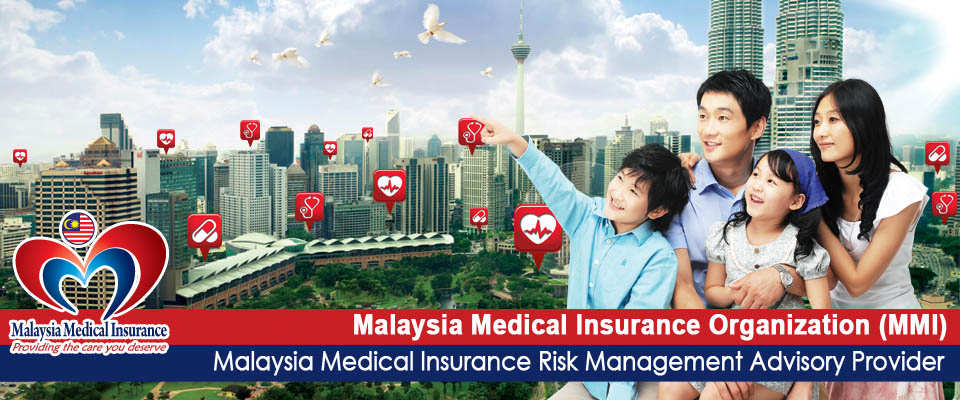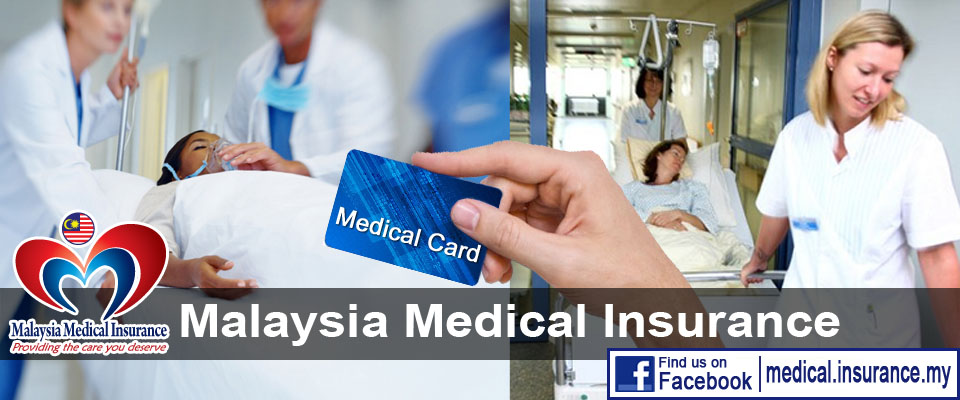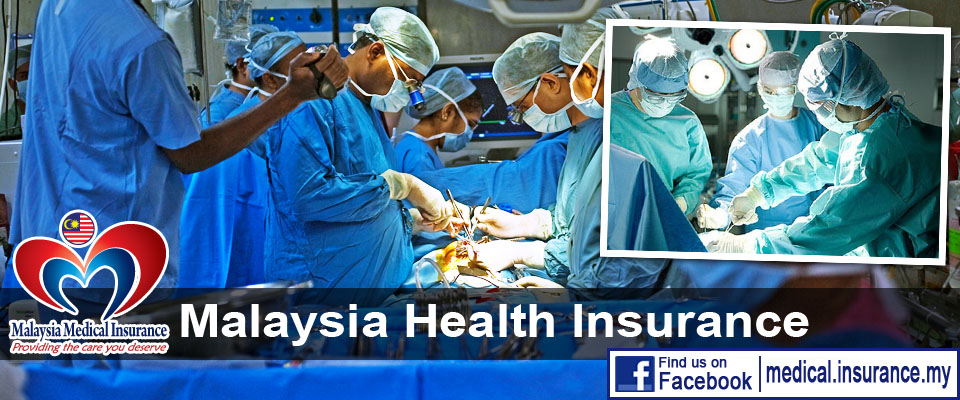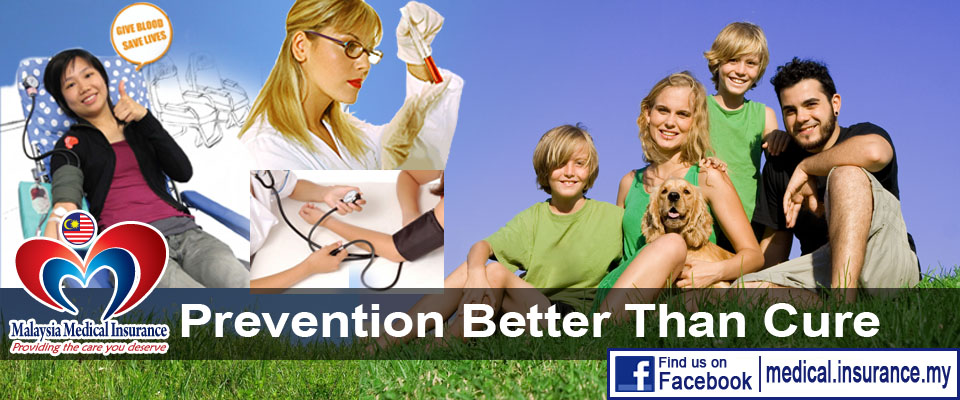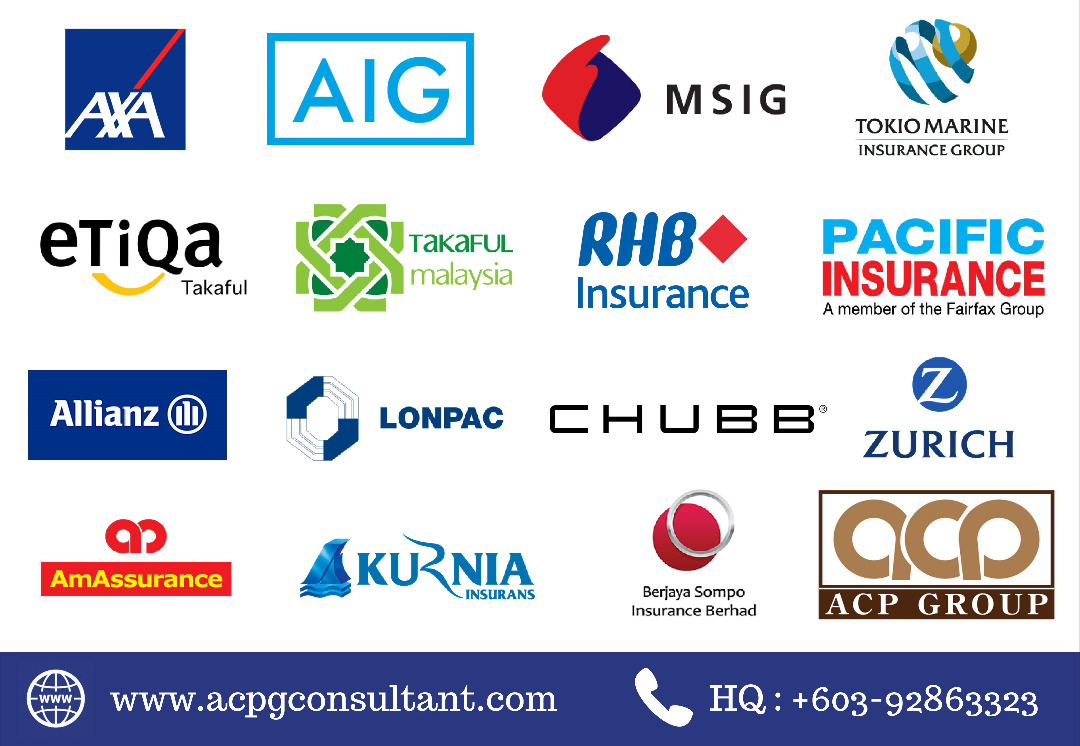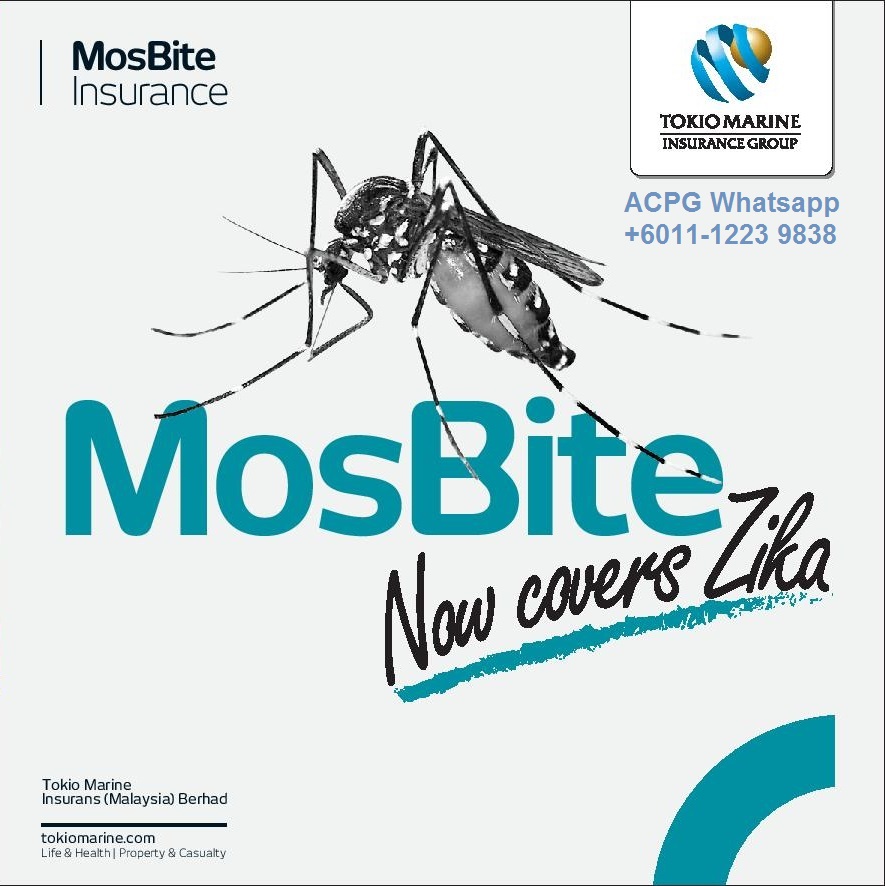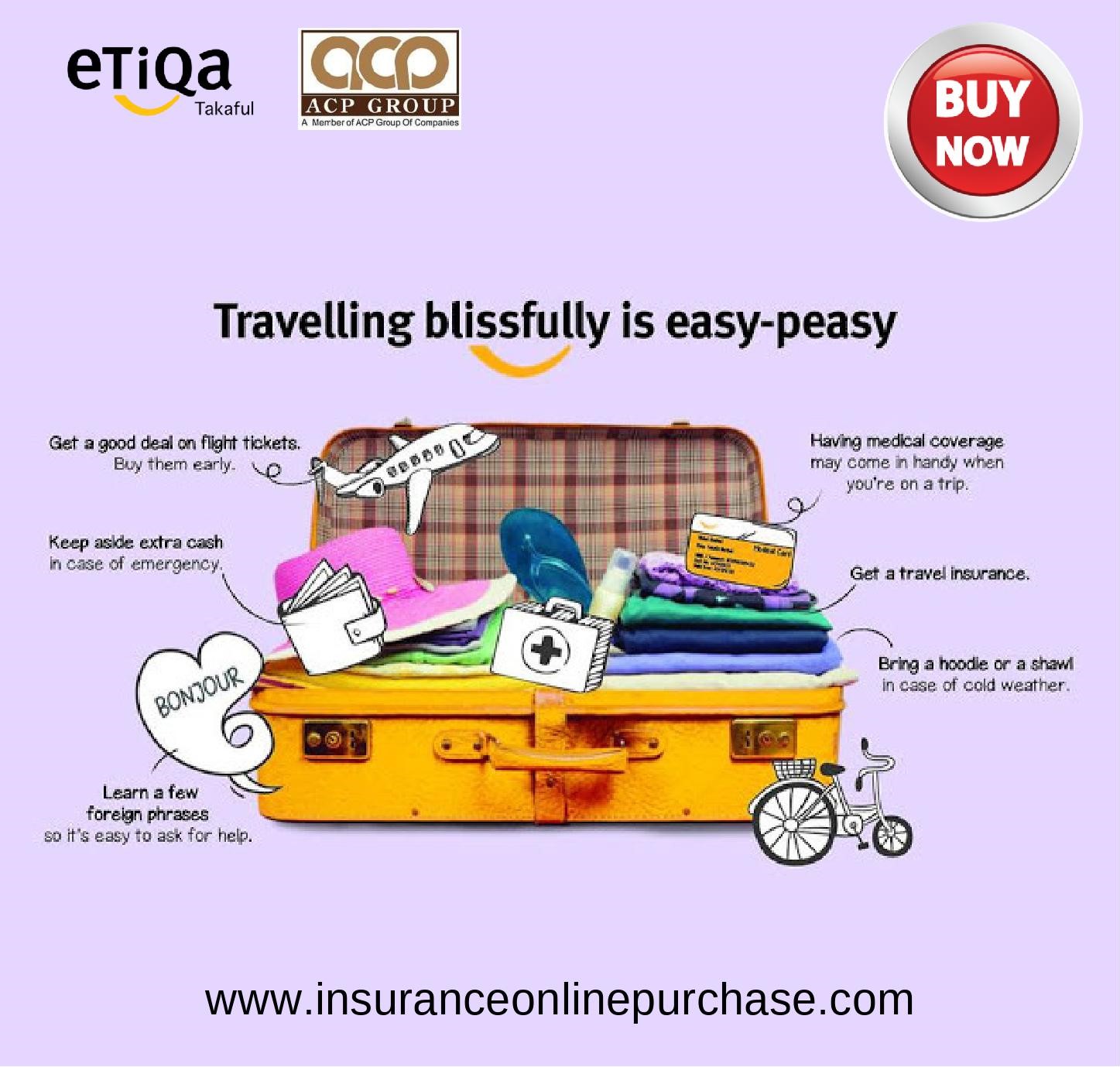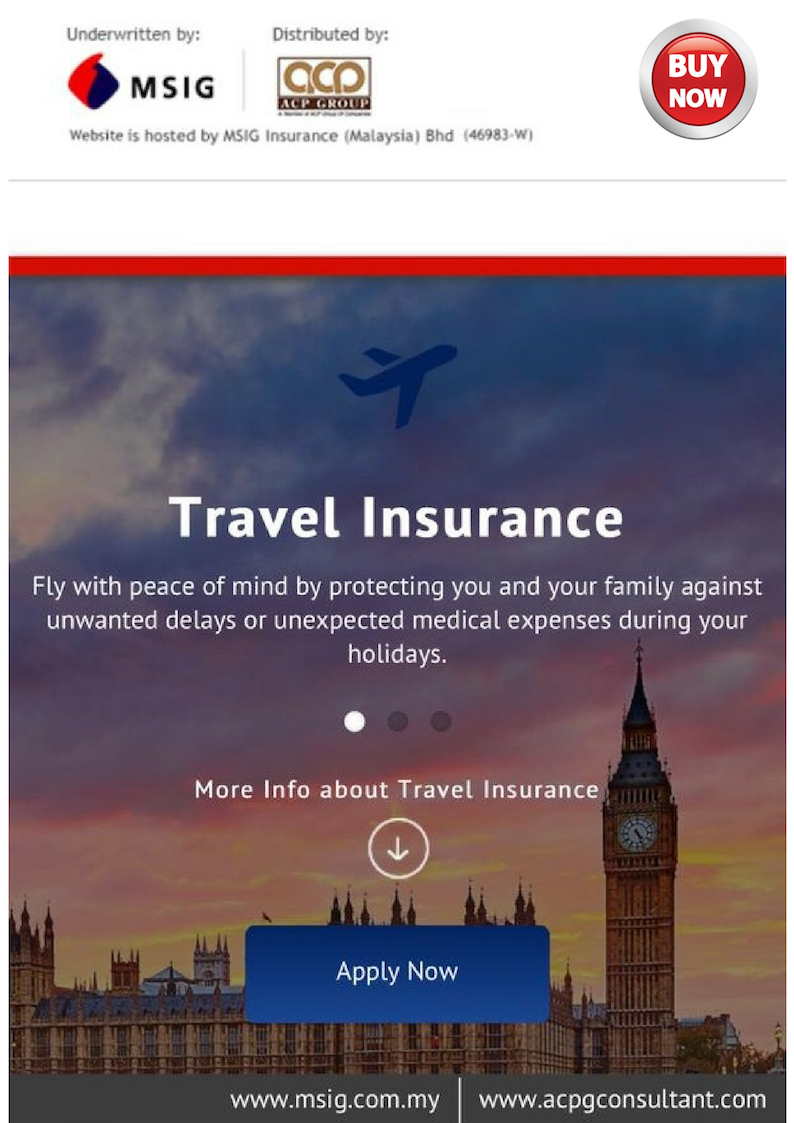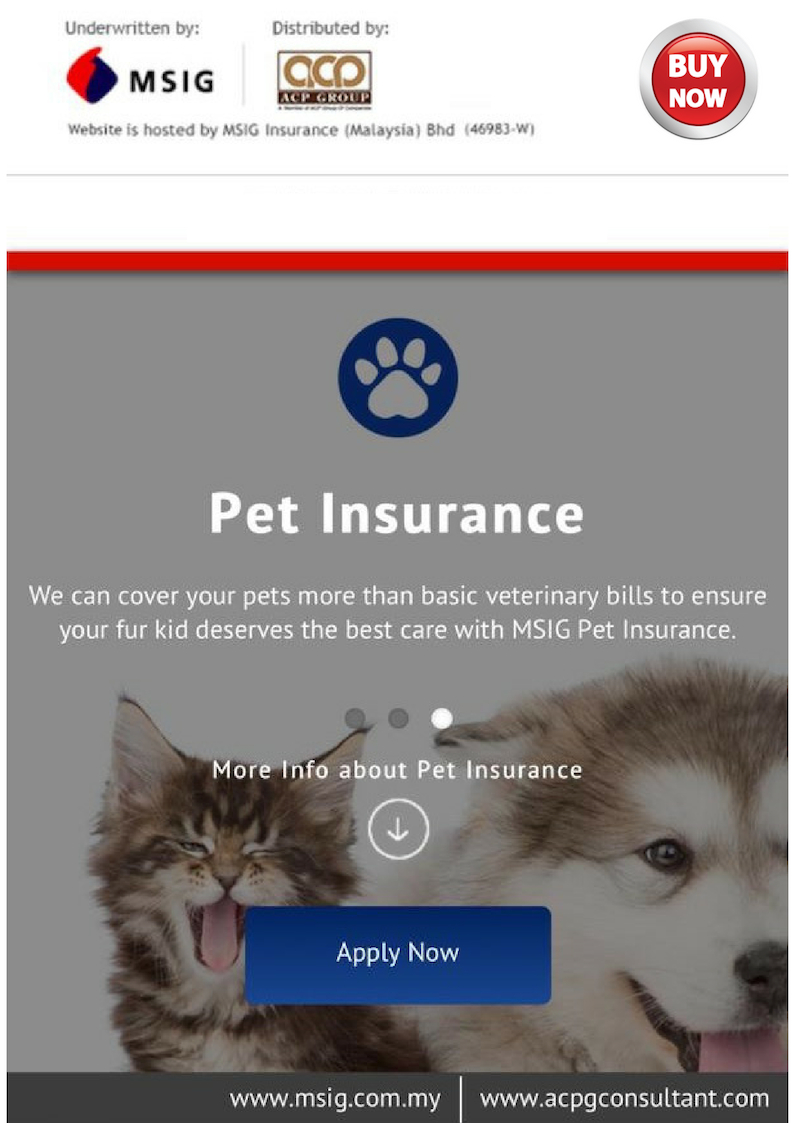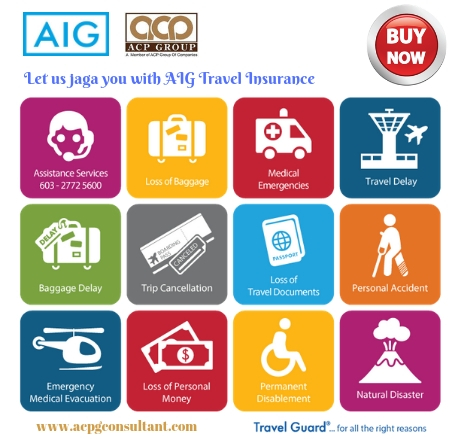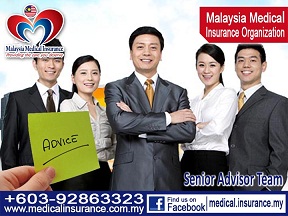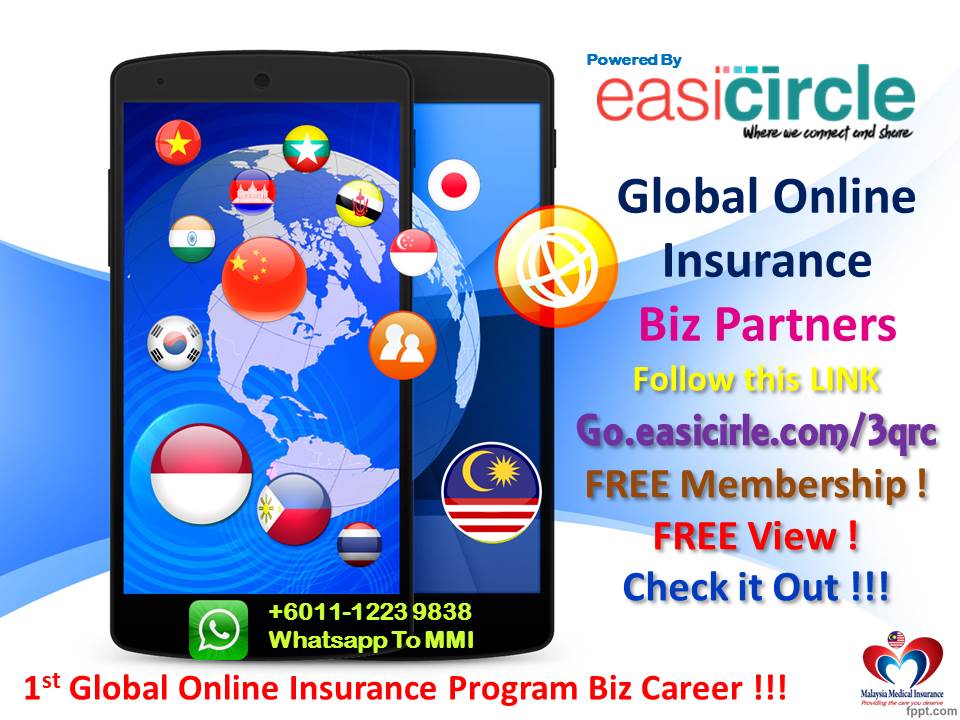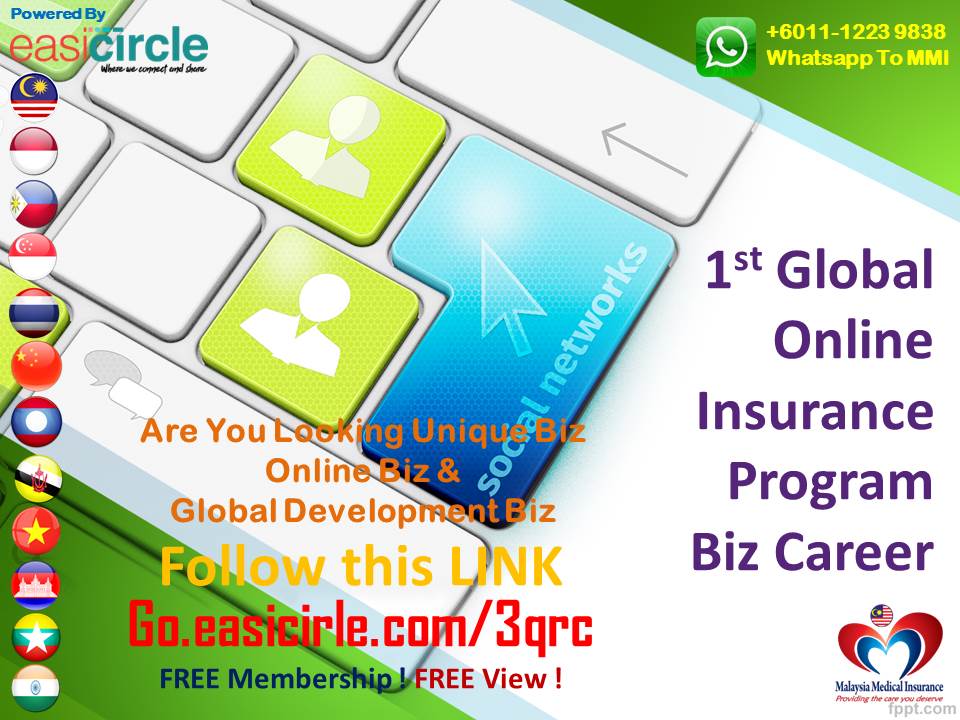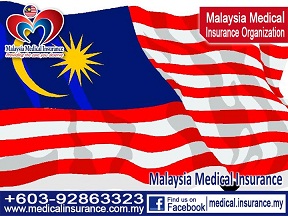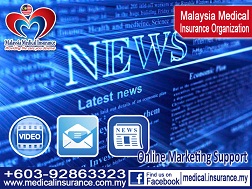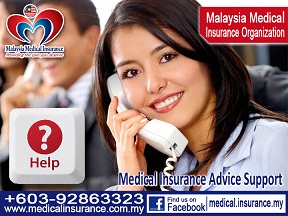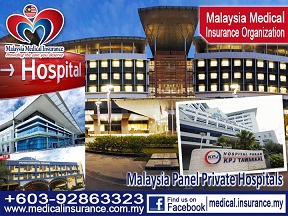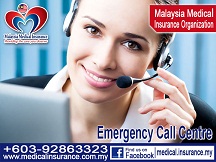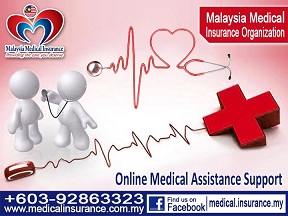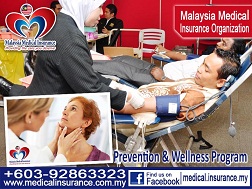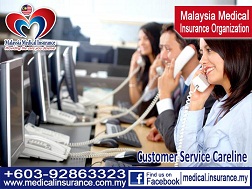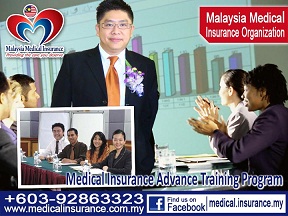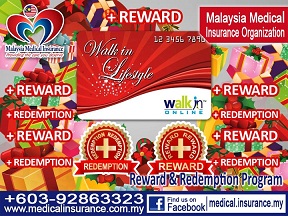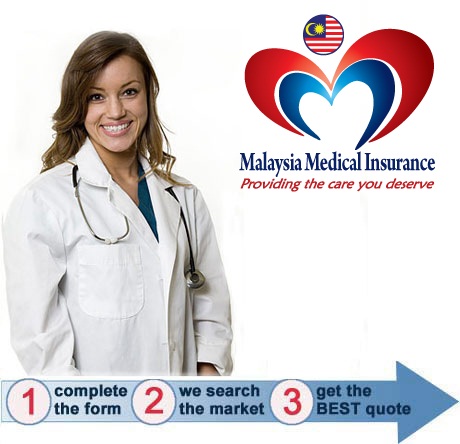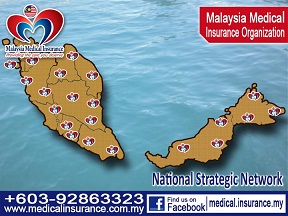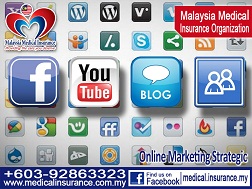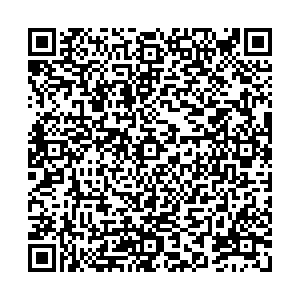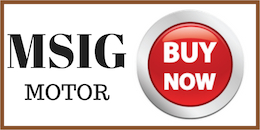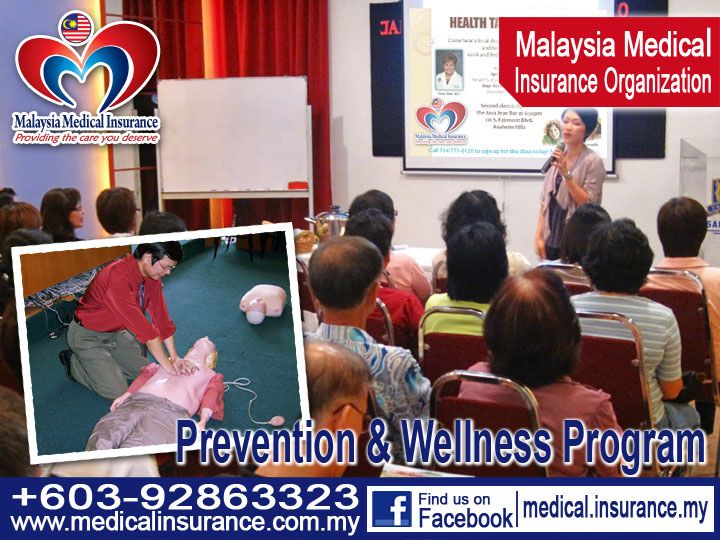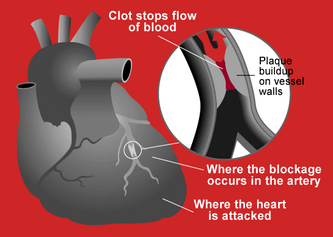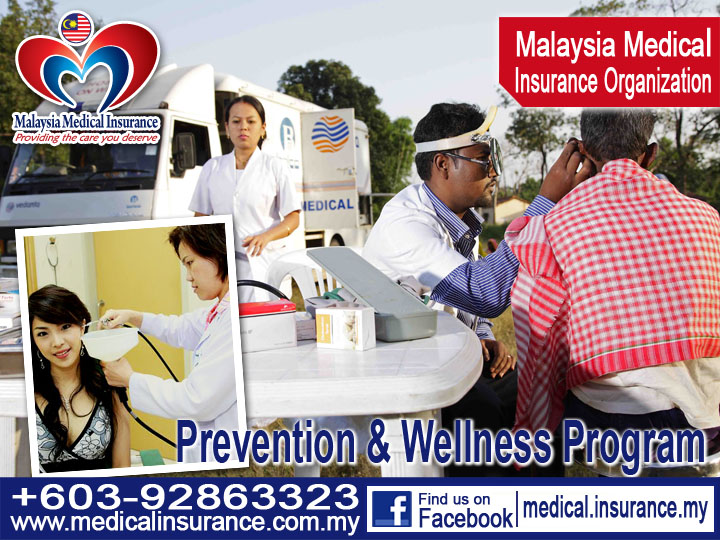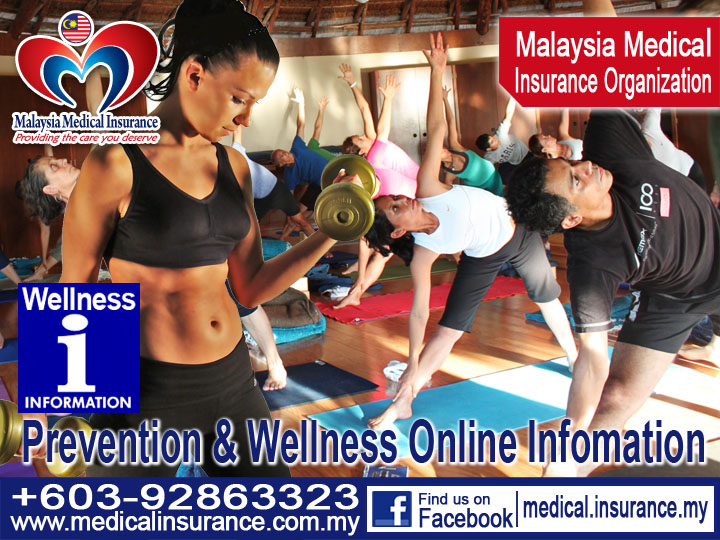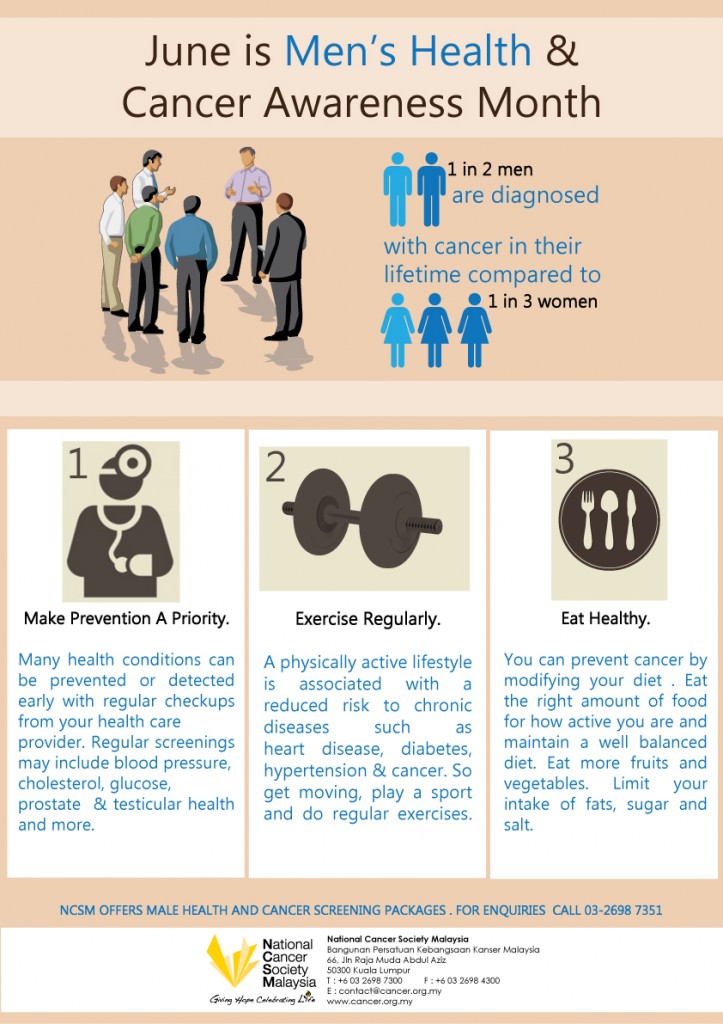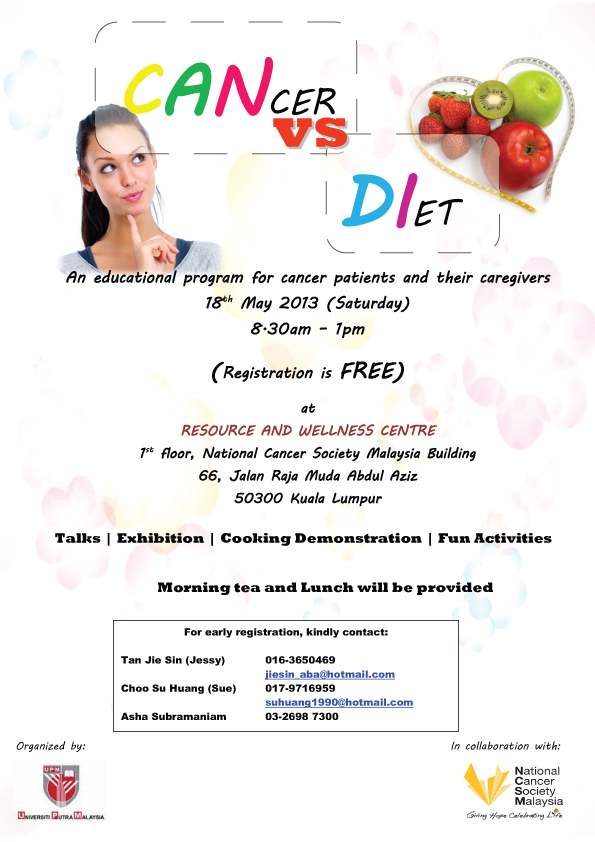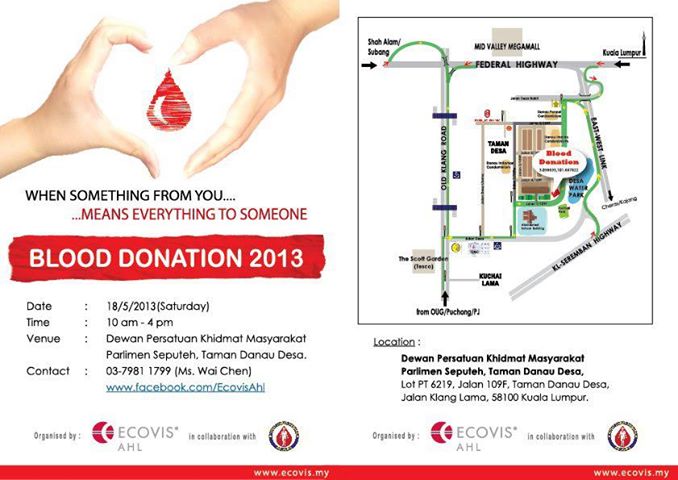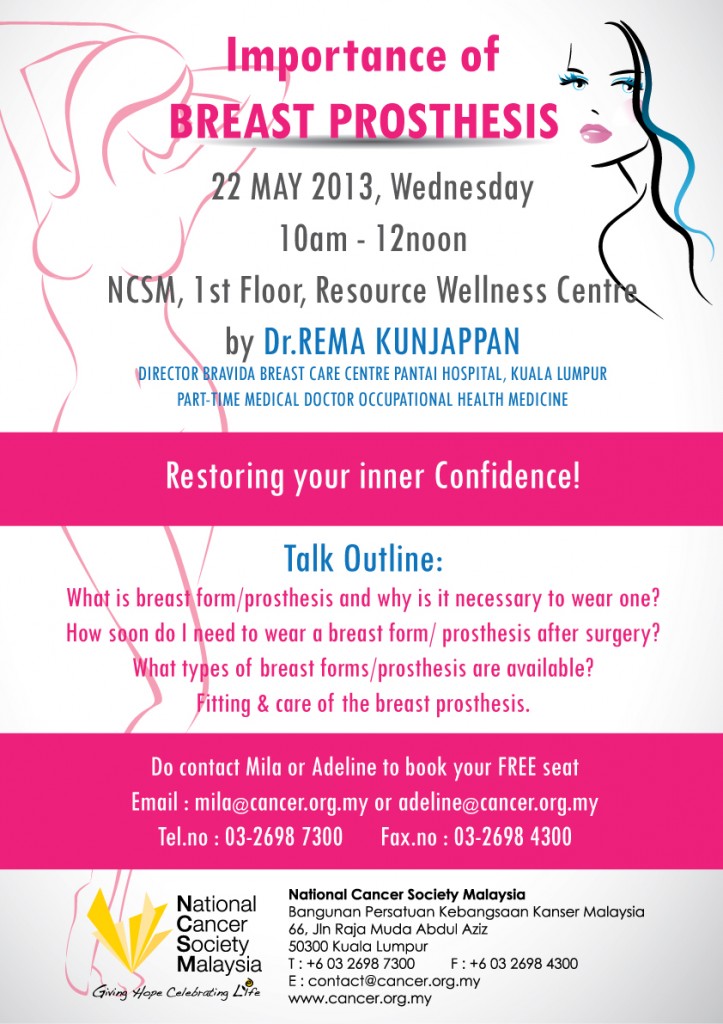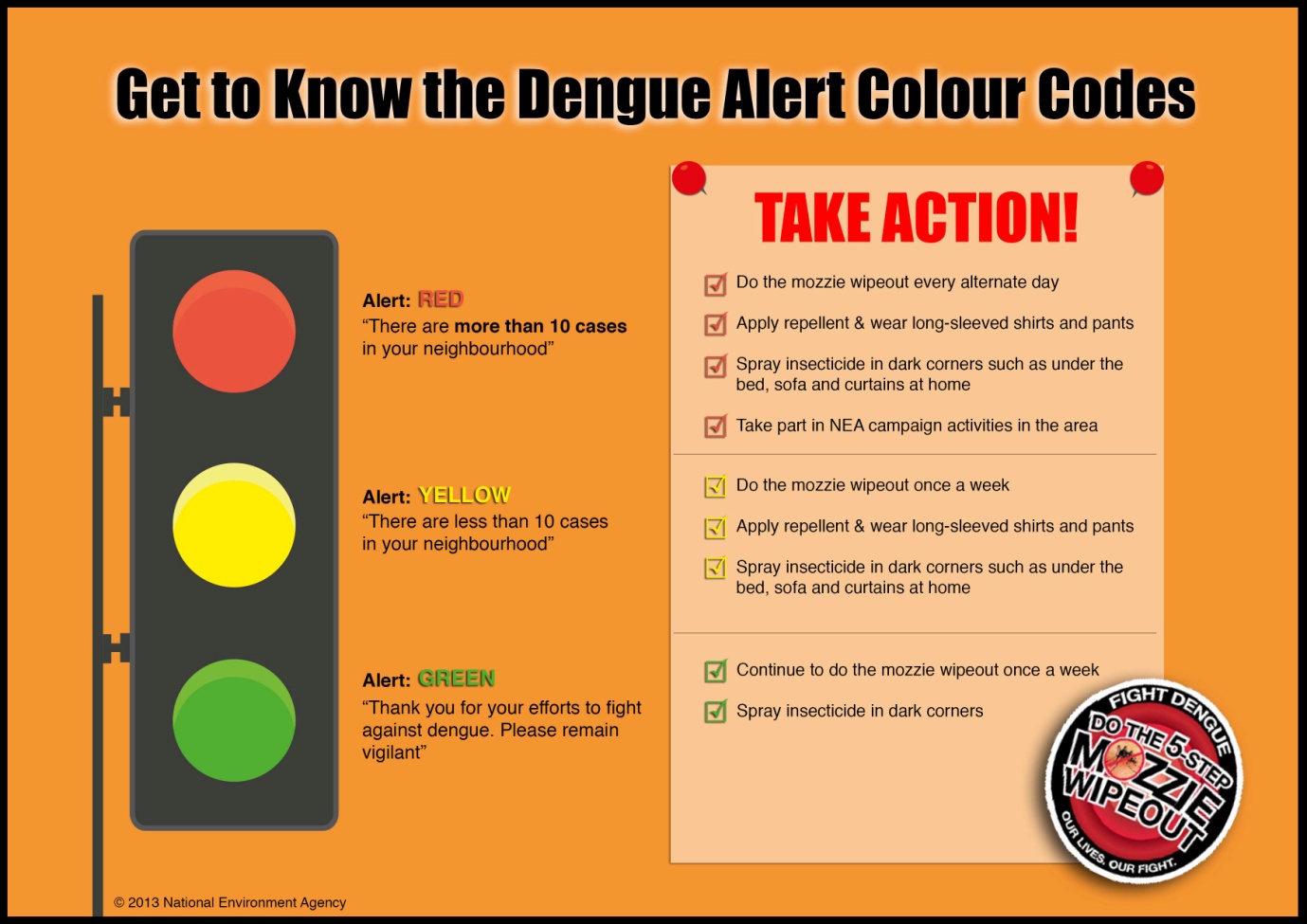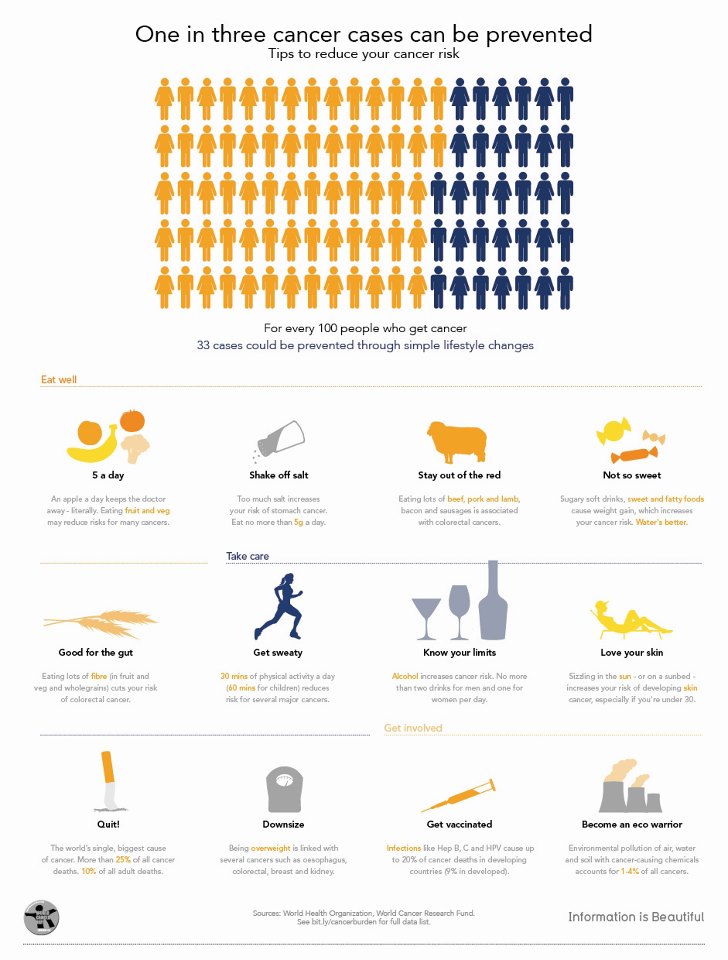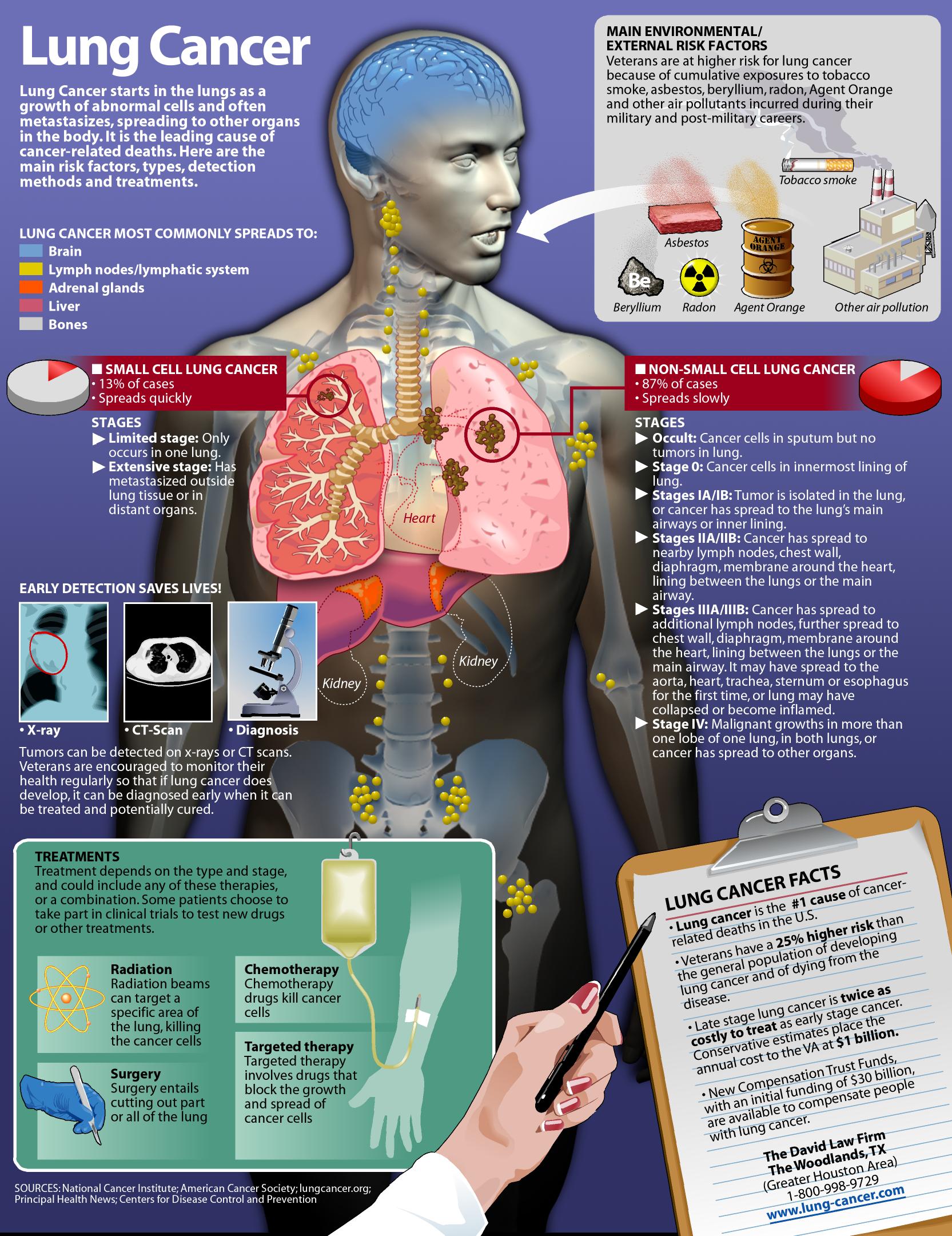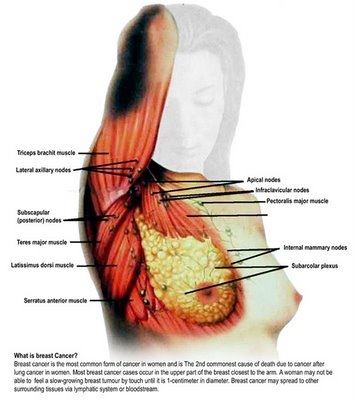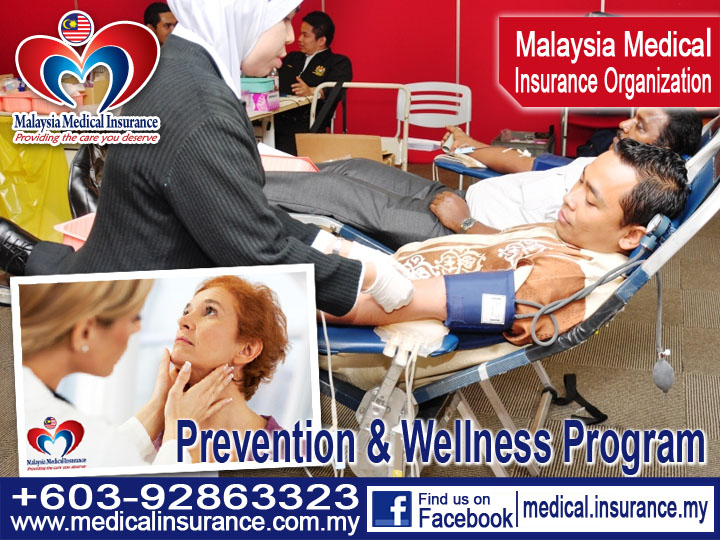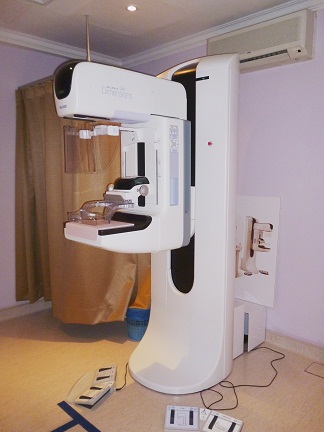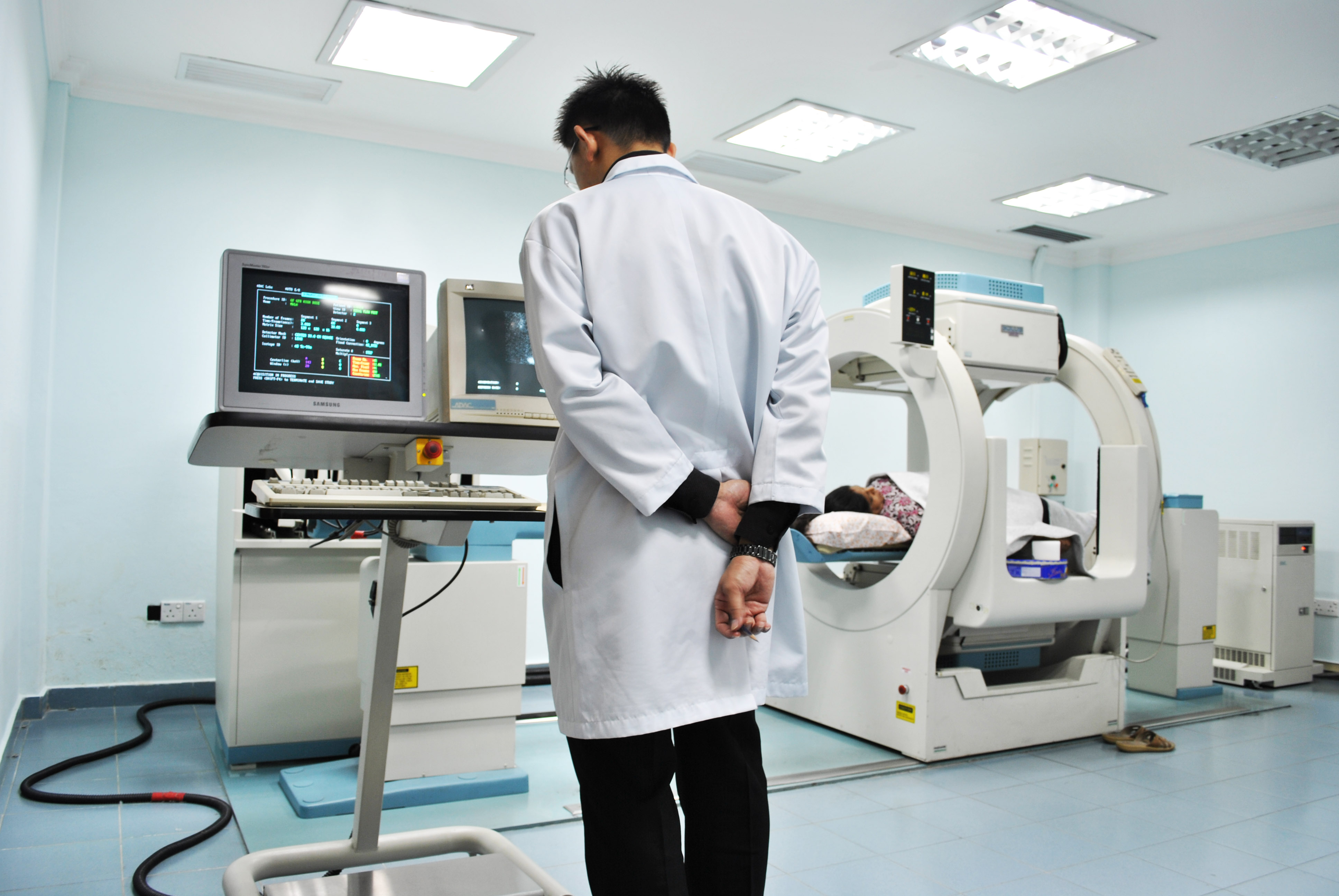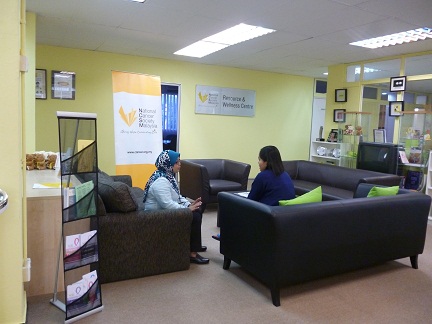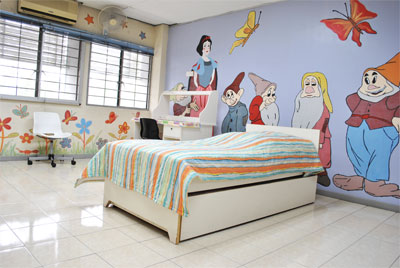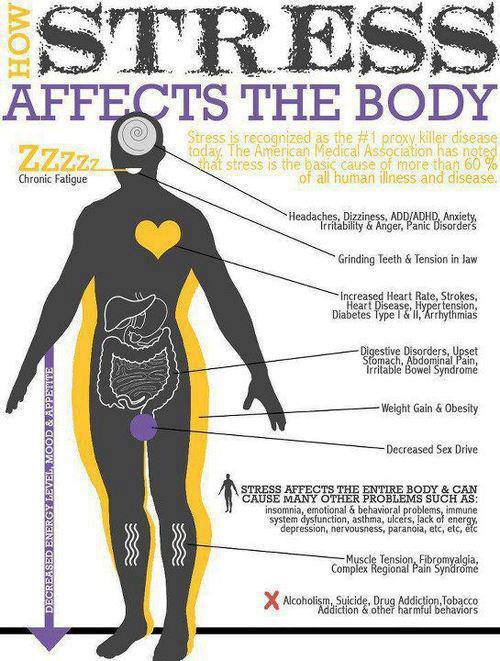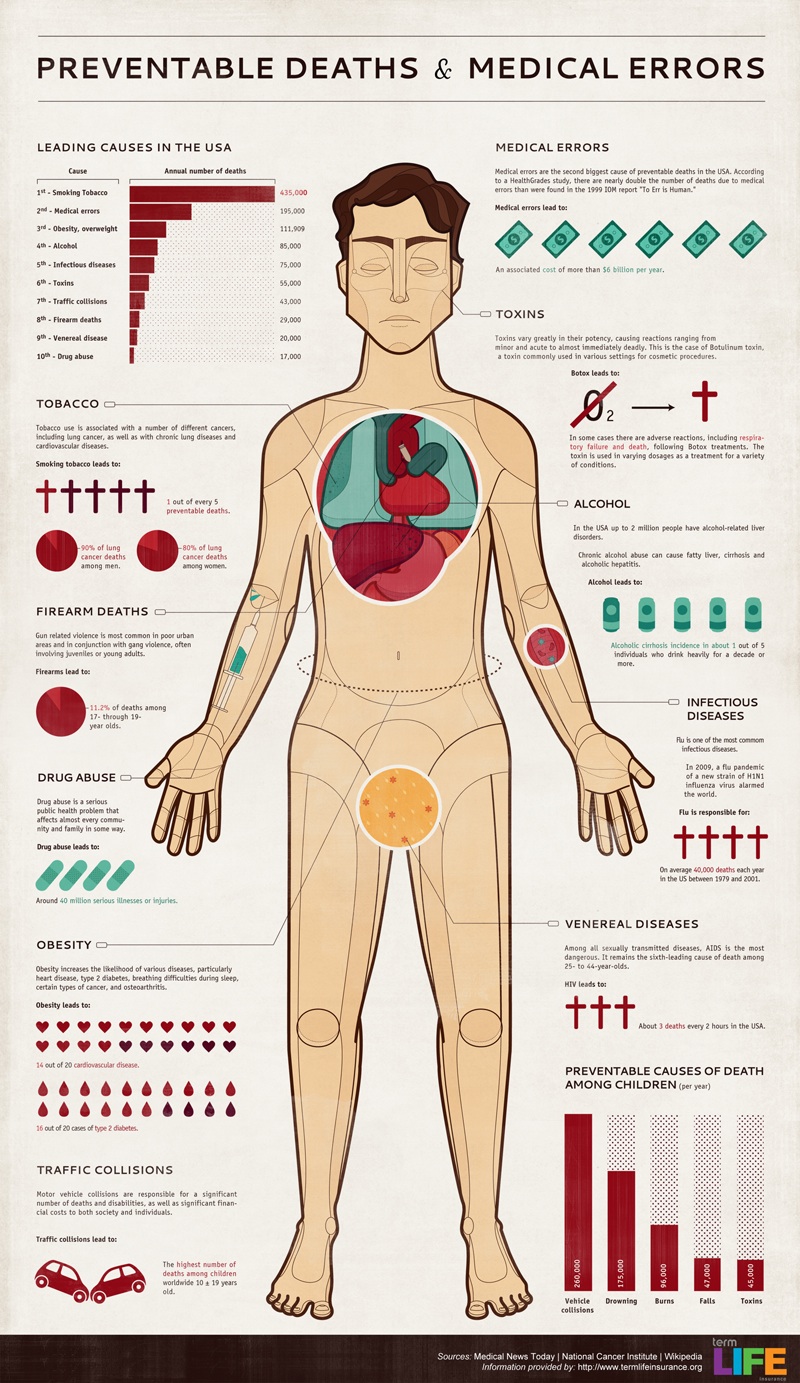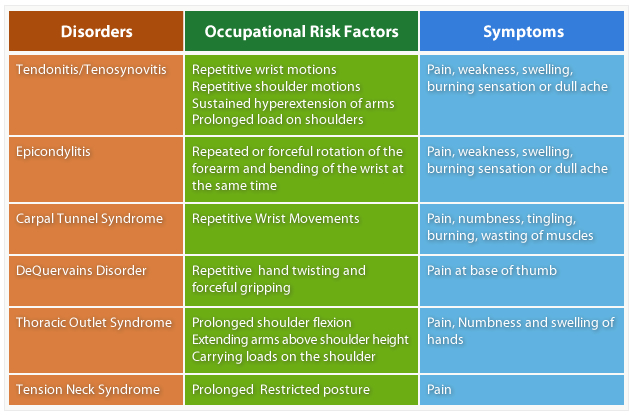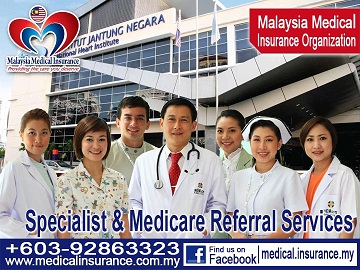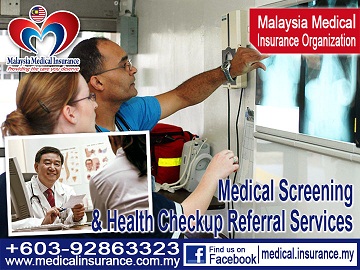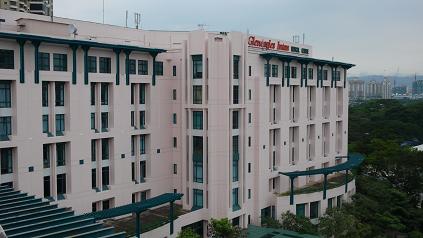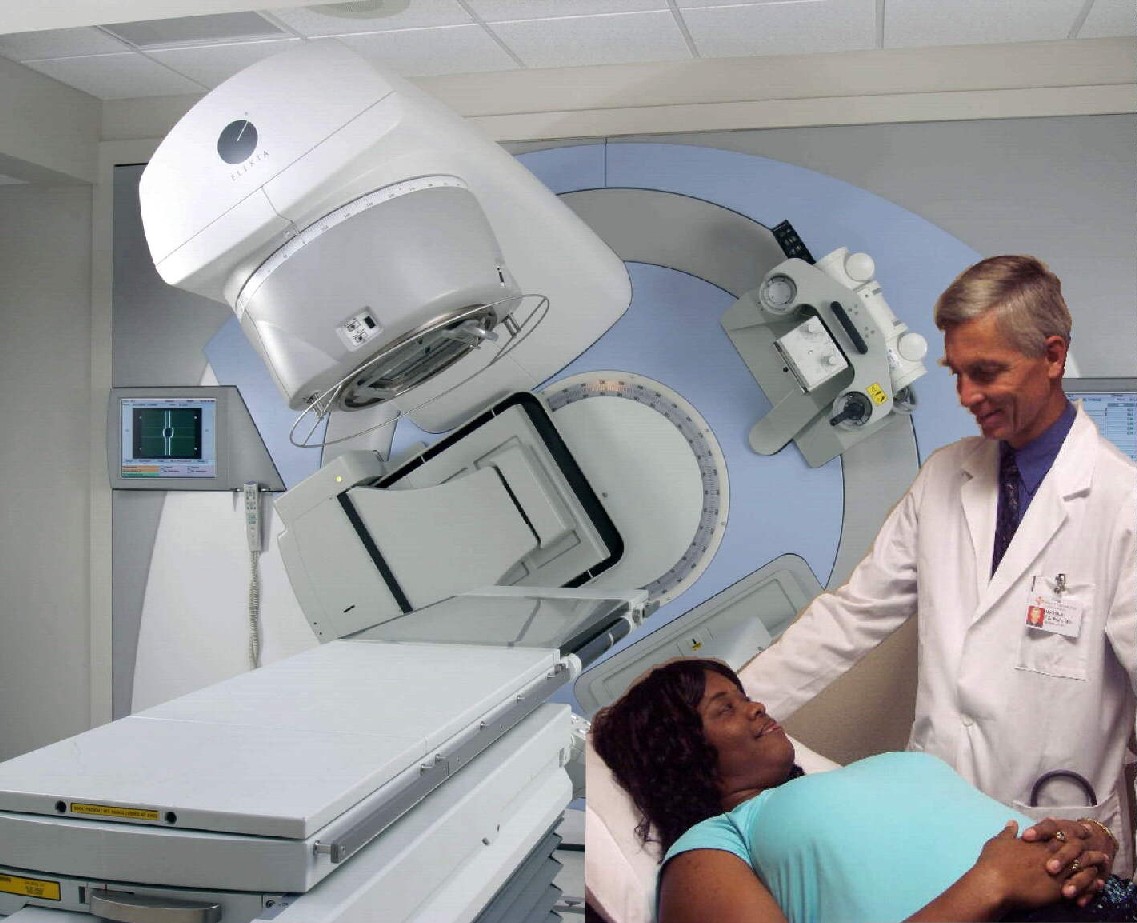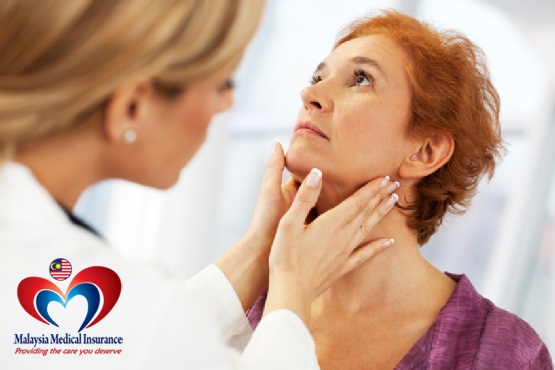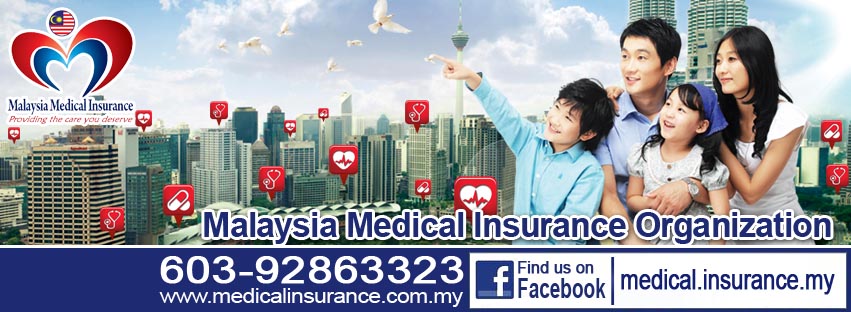Department
Accountant General's Department - Jabatan Akauntan Negara Malaysia
http://www.anm.gov.my/
Aras Eksekutif, Tingkat 8, Blok 2G1A, Precint 2, Kompleks Kewangan, 62594 Putrajaya
Tel: 03 8882 1002, Fax: 03 8889 5821
Armed Forces - Angkatan Tentera Malaysia
http://maf.mod.gov.my/homepage/atm/menuatm.html
Tel: 03 2692 1333
Atomic Energy Licensing Board - Lembaga Perlesenan Tenaga Atom
http://www.aelb.gov.my/
Bahagian Hal Ehwal Undang-Undang - Legal Affairs Department
http://www.bheuu.gov.my/
Jabatan Perdana Menteri
Aras 3, Blok B7, Parcel B, Pusat Pentadbiran Kerajaan Persekutuan, 62502 Putrajaya
Tel: 03 8888 1011, Fax: 03-8888 3731
Bahagian Pengurusan Hartanah - Property & Land Management Division, Prime Minister's Department
http://www.bph.jpm.my/
Jabatan Perdana Menteri
Aras 7, Blok B3, Komplek Jabatan Perdana Menteri, Pusat Pentadbiran Kerajaan Persekutuan, 62502 Putrajaya
Tel: 03 8888 1957, Fax: 03 8888 3031
Biro Bantuan Guaman - Legal Aid Bureau
http://www.bheuu.gov.my/
Jabatan Perdana Menteri
Aras 1, Blok B7, Parcel B, Pusat Pentadbiran, Kerajaan Persekutuan, 62502 Putrajaya
Tel:03 8888 1117, Fax: 03 8888 3791
Biro Tatanegara - Jabatan Perdana Menteri
http://www.aelb.gov.my/
Tel: 03 8888 1957
Commission of Companies - Suruhanjaya Syarikat Malaysia
Registrar of Companies & Businesses - Pendaftar Syarikat & Perniagaan
http://www.ssm.gov.my/
Tingkat 2, 10-18, Putra Place, 100 Jalan Putra, 50622 Kuala Lumpur
Tel: 03 4047 6000 (General Line), Fax: Tel: 03 4047 6317
Department of Agriculture - Jabatan Pertanian Malaysia
http://agrolink.moa.my/doa/
Tel: 03 2698 2011
Department of Chemistry - Jabatan Kimia Malaysia
http://www.kimia.gov.my/
Tel: 03 7985 3000
Department of Civil Aviation - Jabatan Penerbangan Awam Malaysia
http://www.dca.gov.my/
Tel: 03 8886 6000
Department of Environment - Jabatan Alam Sekitar Malaysia
http://www.jas.sains.my/
Tel: 03 8885 8200
Department of Irrigation & Drainage Malaysia DID - Jabatan Pengairan & Saliran Malaysia JPS
http://www.water.gov.my/
Jalan Sultan Salahuddin, 50626 Kuala Lumpur
Tel: 03 2617 5708, Fax: 03 2691 1082
Department of Irrigation & Drainage Sarawak
http://www.did.sarawak.gov.my/
9th & 10th Floors, Wisma Saberkas, Jalan Tun Abang Haji Openg PO Box 1230, 93626 Kuching, Sarawak
Tel: 082 24 3241, Fax: 03 82 42 6400
Department of Museums and Antiquities Malaysia - Jabatan Muzium dan Antikuiti Malaysia
http://www.jma.gov.my/
Jalan Damansara, 50566 Kuala Lumpur.
Tel: 03 2282 6255, Fax: 03 2282 7294
Department of National Unity - Jabatan Perpaduan Negara
http://www.kempadu.gov.my/jpn/
Tel: 03 2693 4400
Department of Occupational Safety and Health DOSH - Jabatan Keselamatan dan Kesihatan Pekerjaan JKKP
http://dosh.mohr.gov.my/
Level 2, 3 & 4, Block D3, Parcel D, Federal Government Administrative Centre, 62502 Putrajaya
Tel: 03 8886 5000, Fax: 03 8889 2351
Department of Orang Asli Affairs - Jabatan Hah Ehwal Orang Asli Malaysia JEOA
http://www.kempadu.gov.my/jheoa/
Tel: 03 2161 0577
Department of Public Health - Jabatan Kesihatan Awam
http://dph.gov.my/
Tel: 03 2694 6601
Department of Sewerage Services - Jabatan Perkhidmatan Pembetungan
http://www.kpkt.gov.my/jpp/
Tel: 03 2096 2605
Department of Standards - DSM
http://www.dsm.gov.my/
Tel: 03 8885 8000
Department of Statistics - Jabatan Perangkaan Malaysia
http://www.statistics.gov.my/
Tel: 03 8885 7000
Department of Survey & Mapping - Jabatan Ukur dan Pemetaan Malaysia JUPEM
http://www.jupem.gov.my/
Tel: 03 2693 3618
Department of Town & Country Planning - Jabatan Perancangan Bandar & Desa
http://www.townplan.gov.my/
Tel: 03 2698 9211
Department of Veterinary Services - Jabatan Perkhidmatan Haiwan
http://agrolink.moa.my/jph/
Tel: 03 2094 0077
Department of Veterinary Services, Perak
http://www.jphpk.gov.my/
Jalan Sultan Azlan Shah Utara, 31400 Ipoh, Perak
Tel: 05 545 9111, Fax: 05 548 2712
Department of Wildlife & National Parks - Jabatan Perhilitan
http://www.wildlife.gov.my/
Tel: 03 9075 2872
Economic Planning Unit, Prime Minister 's Department. EPU
http://www.epu.jpm.my/
Tel: 03 8888 3333
Electricity & Gas Supply Department - Jabatan Bekalan Elektrik & Gas Malaysia
http://www.jbeg.gov.my/
Tel: 03 4047 5400
Examinations Syndicate - Lembaga Peperiksaan Malaysia
http://www2.moe.gov.my/%7Elp/
Tel: 03 2094 1144
Fire & Rescue Department - Jabatan Bomba dan Penyelamat Malaysia.
http://www.bomba.gov.my/
Tel: 03 8888 0036
Fisheries Development Authority of Malaysia (FDAM) - Lembaga Kemajuan Ikan Malaysia (LKIM)
http://agrolink.moa.my/lkim/
Tel: 03 2617 7000
Forestry Department Peninsular Malaysia - Perhutanan Semenanjung Malaysia
http://www.forestry.gov.my/
Tel: 03 2698 8244
Forestry Department Sarawak
http://www.forestry.sarawak.gov.my/
Wisma Sumber Alam, Jalan Stadium, Petra Jaya, 93660 Kuching, Sarawak
Tel: 082 31 9102, Fax: 082 44 1377
Immigration Department of Malaysia - Jabatan Imigresen Malaysia
http://www.imi.gov.my/
Tel: 03 2095 5077
Inland Revenue Board Malaysia IRB - Lembaga Hasil Dalam Negeri LHDN
http://www.hasilnet.org.my/
Tel: 03 6201 7055, 03 6201 0066
Industrial Court - Mahkamah Perusahaan
http://www.jaring.my/ksm/mp/
Tel: 03 2691 2011, 03 2691 2121, 03 2691 2414
Information Department of Malaysia - Jabatan Penerangan Malaysia
http://www.penerangan.gov.my/
Tel: 03 2698 3355
Jabatan Agama Islam Selangor JAIS - Islamic Department of Selangor
http://jais.selangor.gov.my/bm/
Jabatan Agama Islam Wilayah Persekutuan JAWI - Federal Territory Islamic Affairs Department
http://www.jawi.gov.my/
Kompleks Pusat Islam, Jalan Perdana, 50519 Kuala Lumpur
Tel: 03 2274 9333 (KL), 03 8889 2971 (Putrajaya), 087 41 5311 (Labuan)
Jabatan Hal-Ehwal Agama Islam Perlis JAIPs - Islamic Affairs Department of Perlis
http://www.perlis.gov.my/jaip/
Tel: 04 976 1442, Fax: 04 976 1334
Jabatan Insolvensi Malaysia - Department of Insolvency
http://www.bheuu.gov.my/
Jabatan Perdana Menteri
Aras 3, Blok B7, Parcel B, Pusat Pentadbiran Kerajaan Persekutuan, 62502 Putrajaya
Tel: 03 8888 1012, Fax: 8888 3717
Jabatan Kehakiman Syariah Malaysia JKSM
http://www.jksm.gov.my/
Aras 2 & 3, Blok D7, Parcel D, Pusat Pentadbiran Kerajaan Persekutuan, 62677 Putrajaya
Tel: 03 8886 4800, Fax: 03 8889 1627
Jabatan Kemajuan Islam Malaysia JAKIM - Department Of Islamic Development Malaysia
http://www.islam.gov.my/
Tel: 03 8886 4282
Jabatan Kerja Raya JKR - Public Works Department PWD
http://www.jkr.gov.my/
Tel: 03-2691 9011
Jabatan Mufti Negeri Selangor
http://www.muftiselangor.gov.my/
Tingkat 7 & 8, Menara Utara, Bangunan Sultan Idris Shah, 40000 Shah Alam, Selangor
Tel: 03 5514 3738, Fax: 03 5519 7584
Jabatan Penerangan Malaysia - Information Department of Malaysia
http://www.penerangan.gov.my/
Jabatan Pengangkutan Jalan Malaysia JPJ - Road Transport Department RTD
http://www.jpj.gov.my/
Hotline Tel: 03 8886 6400
Jabatan Pengangkutan Jalan Negeri Sabah - JPJ Sabah
http://www.jpjsabah.gov.my/
Jalan Bundusan, Penampang, Beg Berkunci 2013, 88620 Kota Kinabalu, Sabah
Tel: 088 71 7777, Fax: 088 72 3366
Jabatan Pengangkutan Jalan Wilayah Persekutuan Kuala Lumpur - JPJ KL
http://www.jpjwilayah.gov.my/
Lot 14264 Jalan Genting Kelang, Setapak, 53300 Kuala Lumpur
Tel: 03 4024 1200, Fax: 03 4023 6599
Jabatan Perkhidmatan Awam JPA - Public Service Department PSD
http://www.jpa.gov.my/
Blok C1 & C2, Parcel C, Pusat Pentadbiran Kerajaan Persekutuan, 62510 Putrajaya
Tel: 03 8885 3000
Jabatan Perhutanan Negeri Kedah - Kedah Forestry Department
http://www.kedforestry.gov.my/
Tingkat 8, Bangunan Sultan Abdul Halim, 05000 Alor Setar, Kedah
Tel: 04 733 3844, Fax: 04 731 0610
Jabatan Perhutanan Semenanjung Malaysia JPSM - Forestry Department of Peninsular Malaysia
http://www.forestry.gov.my/
Jalan Sultan Salahuddin, 50660 Kuala Lumpur
Tel: 03 2616 4488, Fax: 03 2692 5657
Jabatan Perpaduan & Integrasi Nasional - Department of National Unity & Integration
http://www.jpnin.gov.my/
Jabatan Perdana Menteri
Aras 7-10, Blok E2, Parcel E, Pusat Pentadbiran Persekutuan Putrajaya, 62502 Putrajaya
Tel: 03 8883 7000
Kastam Diraja Malaysia - Royal Customs Malaysia
(formerly Jabatan Kastam Dan Eksais Diraja Malaysia - Royal Customs & Excise Department)
http://www.customs.gov.my/
Blok 11, Kompleks Pejabat-pejabat Kerajaan, Jalan Duta, 50596 Kuala Lumpur
Tel: 03 6201 6088, Fax: 03 6201 5125, E-mail: '; document.write( '' ); document.write( addy_text28998 ); document.write( '<\/a>' ); //-->\n
Ketua Setiausaha Negara Malaysia - Chief Secretary to the Government of Malaysia
http://www.pmo.gov.my/website/ksnwebdb.nsf
Jabatan Perdana Menteri
Blok Timur, Pusat Pentadbiran Kerajaan Persekutuan, 62502 Putrajaya
Tel: 03 8888 1480, Tel: 03 8888 3382
Labour Department - Jabatan Buruh Semenanjung Malaysia
http://www.jaring.my/ksm/jbsm/
Tel: 03 8886 5000
Landscape Department - Jabatan Landskap Negara
http://www.kpkt.gov.my/jln/
Tel: 03 4045 2416
Malaysian Meteorological Service - Perkhidmatan Kajicuaca Malaysia
http://www.kjc.gov.my/
Tel: 03 7967 8000, Info Cuaca Tel: 600 82 7752
Weather Forecast - Ramalan Cuaca: http://www.kjc.gov.my/english/weather/forecast/public.html
Malaysian Army - Tentera Darat Malaysia. TDM
http://army.mod.gov.my/
Tel: 03 2692 1333
Manpower Department - Jabatan Tenaga Rakyat
http://www.jtr.gov.my/
Tel: 03 2095 7222
Marine Department of Malaysia - Jabatan Laut Malaysia
http://www.marine.gov.my/
Tel: 03 3167 7677
Minerals and Geoscience Department Malaysia - JMG
http://www.jmg.gov.my/
19th-22nd Floor, Bangunan Tabung Haji, Jln Tun Razak, 50658 Kuala Lumpur
Tel: 03 2161 1033, Fax: 03 2161 1036
National Audit Department - Jabatan Audit Negara Malaysia
http://www.audit.gov.my/
Tel: 03 2694 6422
National Registration Department NRD - Jabatan Pendaftaran Negara JPN
http://www.jpn.gov.my/
Tel: 03 7968 3200 (PJ), KL Tel: 03 2692 5044 (KL)
National Security Division NSD - Bahagian Keselamatan Negara BKN
http://www.bkn.gov.my/
Tel: 03 8888 2085
Pejabat Ketua Pegawai Keselamatan Kerajaan Malaysia - Office of The Government Chief Security Officer
http://www.cgso.jpm.my/
Jabatan Perdana Menteri
Aras 1 & 2, Blok B7, Pusat Pentadbiran Kerajaan Persekutuan, 62502 Wilayah Persekutuan Putrajaya
Tel: 03 8888 1957, Fax: 03 8888 3258
Pejabat Setiausaha Persekutuan Sabah - Office of Federal Secretary, Sabah
http://www.psupsabah.gov.my/
Jabatan Perdana Perdana Menteri Malaysia
Tingkat 7, Rumah Persekutuan, Beg Berkunci No. 2063, Jalan Mat Salleh, 88592 Kota Kinabalu, Sabah
Tel: 088 24 4303, Fax: 088 21 8950
Pejabat Setiausaha Persekutuan Sarawak - Office of Federal Secretary, Sarawak
http://www1.sarawak.com.my/org/psps/
Jabatan Perdana Perdana Menteri Malaysia
Tingkat 17, Bangunan Sultan Iskandar, Jalan Simpang Tiga, 93300 Kuching, Sarawak
Tel: 082 24 4077, Fax: 082 24 3332
Prisons Department - Jabatan Penjara Malaysia
http://www.prison.gov.my/
Tel: 03 8736 8505
Public Complaints Bureau - Biro Pengaduan Awam
http://www.bpa.jpm.my/
Tel: 03 8888 7777
Public Services Commission PSC - Suruhanjaya Perkhidmatan Awam Malaysia
http://www.spa.gov.my/
Tel: 03 8885 6000
Registrar of Society ROS - Jabatan Pendaftaran Pertubuhan Malaysia JPPM
http://www.jppmros.gov.my/
Tel: 03 4041 1577
Royal Malaysian Air Force - Tentera Udara DiRaja Malaysia. TUDM
http://maf.mod.gov.my/
Tel: 03 2692 1333 (Mindef)
Royal Malaysian Navy - Tentera Laut DiRaja Malaysia. TLDM
http://maf.mod.gov.my/english/navy/homepage/index.html
Tel: 03 2692 1333 (Mindef)
Royal Malaysian Police - Polis Diraja Malaysia PDRM
http://www.rmp.gov.my/
Tel: 03 2262 6310 (Bukit Aman)
Social Welfare Department - Jabatan Kebajikan Masyarakat Malaysia
http://www.kempadu.gov.my/jkm/default.htm
Tel: 03 2692 5011
Unit Penyelarasan Pelaksanaan - Implementation & Coordination Unit - ICU
http://www.icu.gov.my/
Bangunan Perdana Putra, Pusat Pentadbiran Kerajaan Persekutuan, 62502 Putrajaya, Wilayah Persekutuan
Tel: 03 8888 1957, Fax: 03 8888 3528
Urban Transportion Department, Kuala Lumpur City Hall - Jabatan Pengangkutan Bandar
http://www.jpbdbkl.gov.my/
Valuation & Property Services Department - Jabatan Penilaian Dan Perkhidmatan Harta JPPH
http://www.jpph.gov.my/
Tel: 03 8882 4600
Federal Goverment
Prime Minister's Office
Pejabat Perdana Menteri Malaysia
http://www.pmo.gov.my/
Prime Minister: Dato’ Seri Abdullah Ahmad Badawi
Federal Government Administration Center, Bangunan Perdana Putra, 62502 Putrajaya
Tel: 03 8888 8000, Fax: 03 8888 3444
Deputy Prime Minister's Office
Pejabat Timbalan Perdana Menteri Malaysia
http://www.pmo.gov.my/website/tpmwebdb.nsf
Deputy Prime Minister: Dato’ Sri Mohd Najib Bin Tun Haji Abdul Razak
Aras 4, Blok Barat, Bangunan Perdana Putra, Pusat Pentadbiran Kerajaan Persekutuan, 62502 Putrajaya
Tel: 03 8888 1950, Fax: 03 8888 0035
Ministers in the Prime Minister's Department:
Minister: Tan Sri Bernard Giluk Dompok
Minister: Dato’ Seri Mohamad Nazri Bin Abdul Aziz
Minister: Senator Dato' Sri Mohd Effendi Bin Norwawi
Minister: Prof Datuk Dr Abdullah Bin Mohd Zin
Minister: Datuk Dr Maximus @ Johnity Ongkili
Deputy Ministers Ministers in the Prime Minister's Department:
Deputy Minister: Datuk Dr M Kayveas
Deputy Minister: Encik Joseph Entulu Anak Belaun
Deputy Minister: Senator Dato' Abdul Rahman Bin Suliman
Parliamentary Secretary of the Prime Minister's Office:
Dato' Dr Mashitah Binti Ibrahim
Ministry of Agriculture & Agro-Based Industry
Kementerian Pertanian & Industri Asas Tani
http://agrolink.moa.my/
Minister: Tan Sri Dato' Hj. Muhyiddin Bin Hj Mohd Yassin
Deputy: Dato' Seri Mohd Shariff Hj Omar
Deputy: Datuk Mah Siew Keong
Wisma Tani, Jalan Sultan Salahuddin, 50624 Kuala Lumpur
Tel: 03 2617 5000, Fax: 03 2691 3758
Ministry of Arts, Culture & Heritage
Kementerian Kesenian, Kebudayaan & Warisan - KeKKWa
http://heritage.gov.my/
Minister: Datuk Seri Utama Dr Rais Yatim
Deputy: Dato' Wong Kam Hoong
Tingkat 26, 27, 30, 34 & 35, Menara TH Perdana, Maju Junction, 1001 Jalan Sultan Ismail, 50694 Kuala Lumpur
Tel: 03 2612 7600, Fax: 03 2693 5114
Ministry of Defence
Kementerian Pertahanan
http://www.mod.gov.my/
Minister: Dato' Sri Mohd Najib Bin Tun Haji Abdul Razak
Deputy: Dato' Hj Zainal Abidin Bin Hj Zin
Jalan Padang Tembak, 50634 Kuala Lumpur
Tel: 03 2071 1333, Fax: 03 2691 7217
Ministry of Domestic Trade & Consumer Affairs
Kementerian Perdagangan Dalam Negeri & Hal Ehwal Pengguna
http://www.kpdnhep.gov.my/
Minister: Dato’ Shafie Bin Haji Apdal
Deputy: Dato’ S. Veerasingam
Deputy: Encik Hoo Seong Chang
Lot 2G3, Presint 2, Pusat Pentadbiran Kerajaan Persekutuan, 62623 Putrajaya
Tel: 03 8882 5500, 1 800 866 800 (Aduan Harga), 1 800 882 002 (Anti Piracy), Fax: 03 8882 5762
Ministry of Education
Kementerian Pendidikan
http://www.moe.gov.my/
Minister: Dato’ Hishammuddin Bin Tun Hussein
Deputy: Dato’ Hong Choon Kin
Deputy: Dato' Haji Noh Bin Omar
Aras 5, Blok E8, Parcel E, Pusat Pentadbiran Kerajaan Persekutuan, 62604 Putrajaya
Tel: 03 8884 6000
Ministry of Energy, Water & Communications
Kementerian Tenaga, Air & Komunikasi
http://www.ktkm.gov.my/
Minister: Dato’ Seri Dr. Lim Keng Yaik
Deputy: Dato’ Shaziman Bin Abu Mansor
Block E4/5, Kompleks Kerajaan Parcel E, Pusat Pentadbiran Kerajaan Persekutuan, 62668 Putrajaya
Tel: 03 8883 6000, Fax: 03 8889 3712
Ministry of Entrepreneur & Cooperative Development
Kementerian Pembangunan Usahawan & Koperasi
http://www.kpun.gov.my/
Minister: Dato’ Mohamed Khaled Bin Nordin
Deputy: Dato’ Khamsiyah Binti Yeop
2 (Lot 2G6), Pusat Pentadbiran Kerajaan Persekutuan, Putrajaya
Tel: 03 03 8880 5000, Fax: 03 8880 5106
Ministry of Federal Territories
Kementerian Wilayah Persekutuan
http://www.kwp.gov.my/
Minister: Dato' Haji Zulhasnan Bin Rafique
Deputy: Datuk Wira Abu Seman Bin Haji Yusop
Aras 1-4, Blok 2, Menara PjH, Presint 2, 62100 Putrajaya
Tel: 03 8889 7888, Fax: 03 8888 9140
Ministry of Finance
Kementerian Kewangan
http://www.treasury.gov.my/
Minister: Dato’ Seri Abdullah Bin Haji Ahmad Badawi
Minister: Senator Tan Sri Nor Mohamed Bin Yakcop
Deputy: Datuk Dr Ng Yen Yen
Deputy: Dr. Awang Adek Bin Hussin
Kompleks Kementerian Kewangan, Precinct 2, 62592 Putrajaya
Tel: 03 8882 3000, Fax: 03 8882 3892
Ministry of Foreign Affairs
Kementerian Luar Negeri
http://www.kln.gov.my/
Minister: Datuk Seri Syed Hamid Bin Syed Jaafar Albar
Deputy: Datuk Joseph Salang Gandum
Wisma Putra, 1 Jalan Wisma Putra, Precinct 2, 62602 Putrajaya
Tel: 03 8887 4000, 03 887 4570 (After Hours/Emergency), Fax: 03 8889 1717
Ministry of Health
Kementerian Kesihatan
http://www.moh.gov.my/
Minister: Datuk Dr Chua Soi Lek
Deputy: Datuk Dr Abdul Latiff Bin Ahmad
Blok E7, Parcel E, Pusat Pentadbiran Kerajaan Persekutuan, 62510 Wilayah Persekutuan
Tel: 03 8883 2539, Fax: 03 8889 5245
Ministry of Higher Education
Kementerian Pendidikan Tinggi
http://www.mohe.gov.my/
Minister: Datuk Mustapa bin Mohamed
Deputy: Datuk Ong Tee Keat
Blok E3, Parcel E, Pusat Pentadbiran Kerajaan Persekutuan, 62505 Putrajaya
Tel: 03 8883 5000, Fax: 03 8889 3921
Ministry of Home Affairs
Kementerian Dalam Negeri
http://www.moha.gov.my/
Minister: Datuk Seri Mohd. Radzi bin Sheikh Ahmad
Deputy: Dato Tan Chai Ho
Blok D1, Parcel D, Pusat Pentadbiran Kerajaan Persekutuan, 62546 Putrajaya
Tel: 03 8886 8000, Fax: 03 8889 1613
Ministry Housing & Local Government
Kementerian Perumahan & Kerajaan Tempatan
http://www.kpkt.gov.my/
Minister: Dato' Seri Ong Ka Ting
Deputy: Dato' Hjh Azizah Binti Datuk S.P. Hj Mohd Dun
Deputy: Datuk Robert Lau Hoi Chew
Paras 5, Blok K, Pusat Bandar Damansara, Peti Surat 12579, 50782 Kuala Lumpur
Tel: 03 2094 7033, Fax: 03 2094 7380
Ministry of Human Resources
Kementerian Sumber Manusia
http://www.mohr.gov.my/
Minister: Datuk Wira Dr Fong Chan Onn
Deputy: Datuk Abdul Rahman Bin Bakar
Level 6-9, Block D3, Parcel D, Pusat Pentadbiran Kerajaan Persekutuan, 62502 Putrajaya
Tel: 03 8886 5000, Fax: 03 8889 2381
Ministry of Information
Kementerian Penerangan
http://www.kempen.gov.my/
Minister: Datuk Zainuddin Bin Maidin
Deputy: Datuk Ahmad Zahid bin Hamidi
Deputy: Encik Chia Kwang Chye
Angkasapuri, Bukit Putra, 50610 Kuala Lumpur
Tel: 03 2282 5333, Fax: 03 2282 1255
Ministry of Internal Security
Kementerian Keselamatan Dalam Negeri
http://www.mois.gov.my/
Minister: Dato’ Seri Abdullah Ahmad Badawi
Deputy: Dato' Mohd Johari Bin Baharum
Deputy: Dato' Fu Ah Kiow
Blok D1 & D2, Parcel D, Pusat Pentadbiran & Kerajaan Persekutuan, 62546 Putrajaya
Tel: 03 8886 8000, Fax: 03 8889 1613
Ministry of International Trade & Industry
Kementerian Perdagangan Antarabangsa & Industri
http://www.miti.gov.my/
Minister: Dato' Seri Rafidah binti Aziz
Deputy: Dato` Hj Ahmad Husni Mohamad Hanazlah
Deputy: Encik Ng Lip Yong
Block 10, Government Offices Complex, Jalan Duta, 50622 Kuala Lumpur
Tel: 03 6203 3022, Fax: 03 6203 2337
Ministry of Natural Resources & Environment
Kementerian Sumber Asli & Alam Sekitar
http://www.nre.gov.my/
Minister: Dato’ Seri Hj Azmi Khalid
Deputy: Sothinathan a/l Sinna Gaundar
Tingkat 13, Wisma Tanah, Jalan Semarak, 50574, Kuala Lumpur
Tel: 03 2692 1566, Fax: 03 2691 9426
Ministry of Plantation Industries & Commodities
Kementerian Perusahaan Perladangan & Komoditi
http://www.kppk.gov.my/
Minister: Dato’ Peter Chin Fah Kui
Deputy: Datuk Anifah Bin Hj Aman
Aras 6-13, Lot 2G4, Precint 2, Pusat Pentadbiran Kerajaan Persekutuan, 62654 Putrajaya
Tel: 03 8880 3300, Fax: 03 8880 3422
Ministry of Rural & Regional Development
Kementerian Kemajuan Luar Bandar & Wilayah
http://www.rurallink.gov.my/
Minister: Dato’ Abdul Aziz Bin Shamsudin
Deputy: Dato' Haji Zainal Abidin Bin Haji Osman
Deputy: Datuk Dr. Tekhee @ Tiki Anak Lafe
Blok D9, Parcel D, Kompleks Kerajaan Persekutuan, 62606 Putrajaya
Tel: 03 8886 3500, Fax: 03 8889 2104
Ministry of Science, Technology & Innovations
Kementerian Sains, Teknologi & Inovasi
http://www.mosti.gov.my/
Minister: Dato’ Dr Jamaluddin Bin Dato’ Mohd Jarjis
Deputy: Dato' Kong Cho Ha
1-7, Blok C5, Pusat Pentadbiran Kerajaan Persekutuan, 62662 Putrajaya
Tel: 03 8885 8000, Fax: 03 8888 6070
Ministry of Tourism
Kementerian Pelancongan
http://www.motour.gov.my/
Minister: Senator Datuk Tengku Adnan Tengku Mansor
Deputy: Dato' Donald Lim Siang Chai
Tingkat 6, 21, 32-36, Menara Dato' Onn, Pusat Dagangan Dunia Putra, 45 Jalan Tun Ismail, 50695 Kuala Lumpur
Tel: 03 2693 7111, Fax: 03 2694 1146
Ministry of Transport
Kementerian Pengangkutan
http://www.mot.gov.my/
Minister: Dato’ Sri Chan Kong Choy
Deputy: Tengku Dato’ Seri Azlan Ibni Sultan Abu Bakar
Deputy: Datuk Douglas Uggah Embas
Aras 5, 6 & 7, Blok D5, Parcel D, Pusat Pentadbiran Kerajaan Persekutuan, 62502 Putrajaya
Tel: 03 8886 6000, Fax: 03 8889 2537
Ministry of Women, Family & Community Development
Kementerian Pembangunan Wanita, Keluaga & Masyarakat
http://www.kpwkm.gov.my/
Minister: Datuk Shahrizat Binti Abdul Jalil
Deputy: Dato' G Palanivel a/l K Govindasamy
Aras 1-6, Blok E, Kompleks Pejabat Kerajaan Bukit Perdana, Jalan Dato' Onn, 50515 Kuala Lumpur
Tel: 03 2693 0095, Fax: 03 2693 4982
Ministry of Works
Kementerian Kerja Raya
http://www.kkr.gov.my/
Minister: Dato' Seri S Samy Vellu
Deputy: Dato` Ir Mohd Zain Mohamad
Tingkat 4, Blok B, Kompleks Kerja Raya, Jalan Sultan Salahuddin, 50580 Kuala Lumpur
Tel: 03 03-2711 1100, Fax: 03 2711 6564
Ministry of Youth & Sports
Kementerian Belia & Sukan
http://www.kbs.gov.my/ or http://www.menteribeliasukan.net/
Minister: Dato' Azalina Binti Dato' Othman Said
Deputy: Dato' Liow Tiong Lai
Lot 4 G4, Presint 4, Pusat Pentadbiran Kerajaan Persekutuan, 62570 Putrajaya
Tel: 03 8871 3333, Fax: 03 8888 8767
Government Bodies
Academy Of Sciences - Akademi Sains Malaysia
http://www.akademisains.gov.my/
Tel: 03 2694 9898
Anti Corruption Agency ACA - Badan Pencegah Rasuah BPR
http://www.bpr.gov.my/
Tel: 03 6201 1982
Biotechcorp - Malaysian Biotechnology Corporation - Implementing agency for furthering biotechnology objectives
http://www.biotechcorp.com.my/
Level 23, Menara Naluri, 161 Jalan Ampang, 50450 Kuala Lumpur
Tel: 03 2116 5588, Fax: 03 2116 5411
Board of Architects Malaysia - Lembaga Arkitek Malaysia
http://www.lam.gov.my/
Tingkat 17, Block F, Ibu Pejabat JKR, Jalan Sultan Salahuddin, 50582 Kuala Lumpur
Tel: 03 2698 2878, Fax: 03 2693 6881
Communications and Multimedia Consumer Forum of Malaysia, The
http://www.cfm.org.my/
CMC - Malaysian Communications and Multimedia Commission
http://www.cmc.gov.my/
Tel: 03 4047 7000
DARA - Lembaga Kemajuan Pahang Tenggara
http://www.kplb.gov.my/dara/
Wisma Sultan Ahmad Shah, 26700 Muadzam Shah, Pahang
Tel: 09 452 2300, Fax: 09 452 2110
Dasar Sosial Negara DSN - National Social Policy
http://www.dsn.gov.my/
Bahagian Pengembangan & Pembangunan PINTAS,
Tingkat 20, Wisma Bumi Raya, Jalan Raja Laut, 50562 Kuala Lumpur
Tel: 03 2692 5022, Fax: 03 2693 7353
Dewan Bahasa & Pustaka - DBP
http://www.dbp.gov.my/
Tel: 03 2148 1011
Elections Commission - Suruhanjaya Pilihan Raya Malaysia
http://www.spr.gov.my/
Tel: 03 8885 6500
EPF - Kumpulan Wang Simpanan Pekerja KWSP. Employees Provident Fund
http://www.kwsp.gov.my/
Tel: 03 2694 6566, 03 2694 7566, 03 2694 8566
Energy Commission - Suruhanjaya Tenaga
http://www.eest.net.my/ or http://www.st.gov.my/
13th Floor, Menara TH Perdana, 1001 Jalan Sultan Ismail, 50250 Kuala Lumpur
Tel: 03 2612 5400, Fax: 03 2693 7791
Examinations Council - Majlis Peperiksaan Malaysia
http://www.mpm.edu.my/
Tel: 03 6136 9663
FAMA - Lembaga Pemasaran Pertanian Persekutuan Malaysia (with pasar tani schedule)
http://www.famaxchange.org/
Bangunan FAMA Point, Lot 17304 Jalan Persiaran 1, Bandar Baru Selayang, 68100 Batu Caves, Selangor
Tel: 03 6138 9622, Fax: 03 6136 5610
FELCRA Berhad - Lembaga Penyatuan dan Pemulihan Tanah Persekutuan
http://www.felcra.com.my/
Tel: 03 4143 3646
FELDA - Federal Land Development Authority or Lembaga Kemajuan Tanah Persekutuan
http://www.felda.net.my/
Tel: 03 2693 5066
Filem Negara
http://www.filemnegara.gov.my/
Tel: 03 7968 2137
FINAS - Perbadanan Kemajuan Filem Nasiona. National Film Development Corporation
http://www.finas.gov.my/
Tel: 03 4108 5722
FRIM - Forest Research Institute of Malaysia
http://frim.gov.my
Tel: 03 6279 7000
Gerbang Mesra Selangor
http://gerbang.selangor.gov.my/
Halal JAKIM - Pensijilan Halal JAKIM, aduan Halal & semakan status Halal, certification, logo, food
http://www.halaljakim.gov.my/
Highway Authority - LLM Lembaga Lebuhraya Malaysia
http://llmnet.gov.my/
Tel: 03 8737 3000
IKIM - Institut Kefahaman Islam Malaysia. Institute of Islamic Understanding Malaysia
http://www.ikim.gov.my/
Tel: 03 6204 6200
Institut Jantung Negara IJN - National Heart Institute NHI
http://www.ijn.com.my/
145, Jalan Tun Razak, 50400 Kuala Lumpur
Tel: 03 2617 8200
Institut Latihan Kehakiman & Perundangan - Judicial & Legal Training Institute
http://www.ilkap.gov.my/
Lot 5, Jalan Universiti, Seksyen 15, 43650 Bandar Baru Bangi, Selangor
Tel: 03 8925 9088, Fax: 03 8924 3413
Institut Penilaian Negara - INSPEN - National Institute Of Valuation
http://www.inspen.gov.my/
5 Persiaran Institute Bangi, 43000 Kajang, Selangor
Tel: 03 8925 9377, Fax: 03 8925 8100
Institut Sosial Malaysia - ISM - Social Institute of Malaysia
http://www.ism.gov.my/
Institute for Development Studies (Sabah) - IDS
http://www.ids.org.my/
Suite 7CFO1, 7th Floor, Block C, Kompleks Karamunsing 88300 Kota Kinabalu
Tel: 088 246166, Fax: 088 234707
Institute of Diplomacy and Foreign Relations, The (IDFR)
http://www.idhl.gov.my/
INTAN - Institut Tadbiran Awam Negara or National Institute of Public Administration
http://www.intanbk.intan.my/
Tel: 03 2095 2400
KEDA Lembaga Kemajuan Wilayah Kedah - Kedah Regional Development Authority
http://202.187.18.49/
Bangunan UMNO, Jalan Tunku Ibrahim, Peti Surat 195, 05720 Alor Setar, Kedah
Tel: 04 733 1966, Fax: 04 731 3966
Kedai.Kom - Perak, Kedah
Program Pembangunan Komunikasi Rakyat (PPKR) untuk menyalurkan akses perkhidmatan komunikasi terutamanya perkhidmatan internet jalur lebar ke kawasan luar bandar
http://www.kedaikom.net.my/
KEJORA - Lembaga Kemajuan Johor Tenggara
http://www.kejora.gov.my/
Jalan Dato' Hj Hassan Yunos, Bandar Penawar, 81900 Kota Tinggi, Johor
Tel: 07 822 1601, Fax: 07 822 1600
KETENGAH - Lembaga Kemajuan Terengganu Tengah
http://www.ketengah.gov.my/
Karung Berkunci No. 3, 23409 Al Muktafi Billah Shah, Terengganu
Tel: 09 822 3100, Fax: 09 822 3104
Land Custody & Development Authority - LCDA
http://www.pelita.gov.my/
Level 5, 8 & 12, Wisma Satok, Jalan Satok, 93400 Kuching, Sarawak
Tel: 082 23 5944, Fax: 082 23 6001
Lembaga Getah Malaysia LGM - Malaysian Rubber Board
http://www.lgm.gov.my/
Bangunan Getah Asli (Menara), Tingkat 17 & 18, Bangunan Getah Asli, 148 Jalan Ampang, 50450 Kuala Lumpur
Tel: 03 9206 2000, Fax: 03 2163 4492
Lembaga Penduduk dan Pembangunan Keluarga Negara LPPKN - National Population & Family Development Board
http://www.lppkn.gov.my/
12B, LPPKN Building, Jalan Raja Laut, 50350 Kuala Lumpur
Tel: 03 2693 7555, Fax: 03 2692 1357
Lembaga Pengarah Pembangunan Sumber Manusia Berhad PSMB - Human Resources Development Fund
Pendaftaran Skim Latihan Graduan - Graduate Training Scheme Registration
http://www.hrdnet.com.my/
Tingkat 7, Wisma Chase Perdana, Off Jalan Semantan, Bukit Damansara, 50490 Kuala Lumpur
Tel: 03 2098 4800, Fax: 03 2093 5722
Lembaga Tabung Angkatan Tentera - LTAT
http://www.ltat.org.my/
Tingkat 9-12, Bangunan LTAT, Jalan Bukit Bintang, 50748 Kuala Lumpur
Tel: 03 2148 9777, Fax: 03 2148 0939
Lembaga Tabung Haji - Pilgrims Fund Board
http://www.tabunghaji.gov.my/
Tel: 03 2161 2233, 03 2161 4255
Malaysia Design Council
http://www.malaysiadesigncouncil.gov.my/
SIRIM Berhad Complex, Block 25, 1 Persiaran Dato' Menteri, Section 2, 40911 Shah Alam, Selangor
Tel: 03 5544 5621, Fax: 03 5544 5620
Malaysia Design Innovation Centre - MDIC
http://www.mdic.com.my/
Inovasi: 2-3, Jalan Teknokrat 1/1, 63000 Cyberjaya, Selangor
Tel: 03 8317 8888, Fax: 03 8317 8988
Malaysian Centre for Remote Sensing - MACRES
http://www.macres.gov.my/
13 Jalan Tun Ismail, 50480 Kuala Lumpur, Malaysia
Tel: 03 26973400, Fax: 03 2697 3350
Malaysian Cocoa Board (Industry) - Lembaga Koko Malaysia (Industri)
http://www.koko.gov.my/
Tel: 088 25 2572
Malaysian Communications and Multimedia Commission - MCMC
Suruhanjaya Komunikasi & Multimedia Malaysia
http://www.mcmc.gov.my/
Level 11, Menara Dato' Onn, Putra World Trade Centre, 45 Jalan Tun Ismail, 50480 Kuala Lumpur
Tel: 1 800 888 030, 03 4047 7000, Fax: 03 2694 0943
Malaysian Industry-Government Group for High Technology - MIGHT
http://www.might.org.my/
Office of the Science Advisor to Prime Minister
Level 6, Block A2, Menara PjH, Presinct 2, 62100 Putrajaya
Tel: 03 83157888, Fax: 03 8888 8232
Malaysian Pineapple Industry Board
http://www.mpib.gov.my/
Malaysian Timber Certification Council, The
http://www.mtcc.com.my/
19 F, Level 19, Menara PGRM, 8 Jalan Pudu Ulu, Cheras, 56100 Kuala Lumpur
Tel: 03 9200 5008, Fax: 03 9200 6008
Malaysian Timber Council - MTC
http://www.mtc.com.my
Tel: 03 9281 1999
Malaysian Timber Industry Board - MTIB
http://www.mtib.gov.my/
Level 13-17, Menara PGRM, 8 Jalan Pudu Ulu, Cheras, 50728 Kuala Lumpur
Tel: 03 9282 2235, Fax: 03 9285 1477
MAMPU - Malaysian Administrative Modernisation & Management Planning Unit
Unit Pemodenan Tadbiran dan Perancangan Pengurusan Malaysia.
http://www.mampu.gov.my/
Tel: 03 8888 1199
Maritime Institute - MIMA
http://www.mima.gov.my/
MARA - Majlis Amanah Rakyat or Council of Trust For the Indigenous People
http://www.mara.gov.my/
21 Jalan Raja Laut, 50609 Kuala Lumpur
Tel: 03 2691 5111, Fax: 03 26913620
MARDEC Berhad
http://www.mardec.com.my/
Tel: 03 4256 7055
MARDI - Malaysian Agricultural Research and Development Institute
http://www.mardi.my/
Tel: 03 8943 7111
MASTIC - Malaysian Science & Technology Information Centre
http://www.mastic.gov.my/
Tel: 03 8885 8000
MDIC Malaysian Defence Industry Council - Majlis Industri Pertahanan Malaysia
http://mdic.mod.gov.my/
Tel: 03 2071 5675
MIMOS - Malaysian Institute of Microelectronic Systems
http://www.mimos.my/
Tel: 03 8996 5000, 03 8996 1900, 03 8996 5000 (Anjung MIMOS)
MINT - Malaysian Institute for Nuclear Technology Research
Institut Penyelidikan Teknologi Nuklear Malaysia
http://www.mint.gov.my/
Tel: 03 8925 0510
MPOB - Malaysian Palm Oil Board
http://mpob.gov.my/
Tel: 03 8925 9155
MPOPC - Malaysian Palm Oil Promotion Council
http://www.mpopc.org.my/
MTDC Malaysian Technology Development Corporation
http://www.mtdc.com.my/
Tel: 03 2161 2000
Multimedia Development Corporation - MDeC (formerly MDC)
http://www.mdec.com.my/ or http://www.mdc.com.my/
Tel: 03 8318 8477
Multimedia Technology Enhancement Operations - METEOR
http://www.meteor.com.my/
Post Box 132, 16th Floor, Angkasa Raya Building, Jalan Ampang, 50450 Kuala Lumpur
Tel: 03 2148 8400, Fax: 03 2141 5400
Multimedia Super Corridor - MSC
http://www.msc.com.my/
MSC Headquarters
2360 Persiaran APEC, 63000 Cyberjaya
Tel: 03 8315 3000, Fax: 03 8318 8519
MyCERT - Malaysian Computer Emergency Response Team
http://www.mycert.org.my/
c/o MIMOS Berhad, Technology Park Malaysia, 57000 Kuala Lumpur
Tel: 03 8996 1901, Fax: 03 8996 0827
MyKad - Kad Pintar Pelbagaiguna Kerajaan - Government Multipurpose ID Card
http://www.jpn.gov.my/gmpc/index.htm
MyNIC - Malaysian Network Information Center (.my domain name registration)
http://www.mynic.net.my/
Tel: 03 8657 7008
National Archives - Arkib Negara Malaysia
http://arkib.gov.my/
Tel: 03 6201 0688
National Biotechnology Directorate
http://www.biotek.gov.my/
Ministry of Science Technology & Innovation,
Level 3, Block C4, Parcel C, Federal Government Administrative Centre, 62662 Putrajaya
Tel: 03 8885 8187, Fax: 03 8888 4050
National Biotechnology & Bioinformatics Network - NBBnet
http://www.nbbnet.gov.my/
Aras 3, Blok C4, Parcel C, Pusat Pentadbiran Kerajaan Persekutuan, 62662 Putrajaya
National Library - Perpustakaan Negara Malaysia
http://www.pnm.my/
Tel: 03 2687 1700
National Narcotic Agency (Anti-Drug) - Agensi Anti-Dadah Kebangsaan
http://www.adk.gov.my/
National Pharmaceutical Control Bureau NPCB - Biro Pengawalan Farmaseutikal Kebangsaan BPFK
http://www.bpfk.gov.my/
Tel: 03 7957 3611
National Sports Council - Majlis Sukan Negara Malaysia Kompleks Sukan Negara, Bukit Jalil
http://www.nsc.gov.my/
Tel: 03 8992 9600
NIOSH - National Institute Of Occupational Safety And Health
http://www.niosh.com.my/
Tel: 03 8926 1900
NISER - National ICT Security and Emergency Response Centre
http://www.niser.org.my/
c/o MIMOS Berhad.
Technology Park Malaysia, 57000 Kuala Lumpur
Tel: 03 8996 1901, Fax: 03 8996 0827, E-mail: '; document.write( '' ); document.write( addy_text26560 ); document.write( '<\/a>' ); //-->\n
NLAC National Labour Advisory Council
http://www.jaring.my/ksm/nlac.htm
NPC - National Productivity Corporation. Perbadanan Produktiviti Negara
http://www.npc.org.my/
Tel: 03 7955 7266
Olympic Council Of Malaysia - OCM
http://www.olympic.org.my/
Tel: 03 2715 2802
Parliament - Parlimen Malaysia (Dewan Rakyat & Dewan Negara)
http://www.parlimen.gov.my/
Tel: 03 2072 1955
Penang Development Corporation
http://www.pdc.gov.my/
1 Pesiaran Mahsuri, Bandar Bayan Baru, 11909 Bayan Lepas, Penang
Tel: 04 634 0111, Fax: 04 643 2405
Pepper Marketing Board
http://www.sarawakpepper.gov.my/
Tel: 082 33 1811
Perbadanan Harta Intelek Malaysia - Intellectual Property Corporation of Malaysia
http://www.mipc.gov.my/
Aras 32, Menara Dayabumi, Jalan Sultan Hishamuddin, 50623 Kuala Lumpur
Tel: 03 2274 8671(Counter), 03 2274 2100 (Operator), Fax: 03 2274 1332
Perbadanan Putrajaya
http://www.putrajaya.net.my/
Tel: 03 8887 7000
Percetakan Nasional Malaysia Berhad (PNMB) - Print Nasional Malaysia Berhad
(Privatised company which was previously the National Government Printers)
http://www.printnasional.com.my/
Jalan Chan Sow Lin, 50554 Kuala Lumpur
Tel: 03 9221 2022, Fax: 03 9222 4773
PERDA Lembaga Kemajuan Wilayah Pulau Pinang - Penang Regional Development Authority
http://www.perda.gov.my/
1 Lorong Kampung Gajah 2, Jalan Kampung Gajah, 12200 Butterworth, Pulau Pinang
Tel: 04 310 3100, Fax: 04 3321676
PERKESO - See SOCSO below
PKNS Perbadanan Kemajuan Negeri Selangor
http://www.pkns.gov.my/
Tel: 03 7957 2955
PORIM - Palm Oil Reseach Institute of Malaysia
http://porim.gov.my/
PORLA
http://www.porla.gov.my/
Pusat Infrastruktur Data Geospatial Negara - Malaysian Centre for Geospatial Data Infrastructure (MaCGDI)
http://www.nalis.gov.my/
Tingkat 16, Wisma Tanah, Jalan Semarak, 50574, Kuala Lumpur
Tel: 03 2692 1566, Fax: 03-2693 4941
Pusat Pelancongan Malaysia - Malaysia Tourism Centre MTC
http://www.mtc.gov.my/
109 Jalan Ampang, 50450 Kuala Lumpur
Tel: 03 2163 3664, Fax: 03 2162 1149
Pusat Sains Negara PSN - National Science Center
http://www.psn.gov.my/
Pesiaran Bukit Kiara, Bukit Kiara, 50662 Kuala Lumpur
Tel: 03 2092 1150, Fax: 03 2092 1250
Pusat Tenaga Malaysia - National energy research centre
http://www.ptm.org.my/
Puspakom - Pusat Pemeriksaan Kenderaan Berkomputer. Vehicle Inspection & Safety Certification Center
http://www.puspakom.com.my/
553 A-E, Tkt 3&4, Batu 3 1/2, Jalan Ipoh 51200 Kuala Lumpur
Tel: 03 6258 3233, Fax: 03 6253 6199, E-mail: '; document.write( '' ); document.write( addy_text71717 ); document.write( '<\/a>' ); //-->\n
Jalan Genting Klang, Setapak, 53300 Kuala Lumpur
Tel: 03 4143 3321, Fax: 03 4143 5388
RISDA
http://www.risda.gov.my/
Bangunan RISDA, Km 7 Jalan Ampang, 50990 Kuala Lumpur
Tel: 03 4256 4022, Fax: 03 4257 6726
Sabah Economic Development Corporation - SEDCO
http://www.sabah.gov.my/sedco/
Tingkat 8, 9, 10, Wisma SEDCO, Lorong Plaza Wawasan, Off Coastal Highway, 88823 Kota Kinabalu, Sabah
Tel: 088 26 6777, Fax: 088 21 9179
Sabah Energy Corporation
http://www.sabahenergycorp.com/
1st, 2nd & 3rd Floors, Wisma Boon Siew, 9.5 KM, Tuaran Road, 88450 Inanam, Kota Kinabalu, Sabah
Tel: 088 44 0600, Fax: 088 44 0607
Sarawak Development Institute - SDI
http://www.sdi.com.my/
Kompleks AZAM, Jalan Crookshank, 93000 Kuching, Sarawak
Tel: 082 41 5484, Fax: 082 41 2799
Sarawak Economic Development Corporation SEDC
http://www.sedc.com.my/
6-11th Floor, Menara SEDC, Jalan Tunku Abdul Rahman, P O Box 400, 93902 Kuching, Sarawak
Tel: 082 41 6777, Fax: 082 42 4330
Sarawak Forestry
http://www.sarawakforestry.com/
Level 12, Office Tower, Hock Lee Centre, Jalan Datuk Abang Abdul Rahim, 93450 Kuching, Sarawak
Tel: 1 800 88 2526, 082 34 8001, Fax: 082 48 8654
Selangor Industrial Corporation - SIC
http://www.sic.com.my/
1 Jalan Singa B 20/B, Seksyen 20, 40000 Shah Alam, Selangor
Tel: 03 5541 6499, Fax: 03 5542 3573
Selangor State Investment Centre - SSIC
http://www.ssic.com.my/
24th Floor, Wisma MBSA, Persiaran Perbandaran, 40000 Shah Alam
Tel: 03 5510 2005, Fax: 03 5519 6403
SERI - Penang State Government's Socio-Economic and Environmental Research Institute (Think Tank)
http://www.seri.com.my/
SIRIM Berhad - Standards and Industrial Research Institute of Malaysia
http://www.sirim.my/
Tel: 03 5544 6000
SOCSO - Social Security Organization. PERKESO Pertubuhan Keselamatan Sosial Malaysia
http://www.perkeso.gov.my/
Menara PERKESO, 281 Jalan Ampang, 50538 Kuala Lumpur
Tel: 03 4264 5000, 03 4257 5755 (Hotline)
Technology Park Malaysia - TPM
http://www.tpm.com.my/
Tel: 03 8998 2020
Malaysia Association & Chamber (Search by A - Z)
Actuarial Society of Malaysia - Persatuan Aktuari Malaysia
http://www.actuaries.org.my/
Advanced Manufacturing Institute - AMI
http://www.ami.net.my/
A-5-5, 4th Floor, Centrepoint Business Park, 5 Jalan Tanjung Keramat 26/35, Seksyen 26, 40000 Shah Alam
Tel: 03 5191 6060, Fax: 03 5192 7080
All Malaysia Malayalee Association
http://www.amma.org.my/
American Association of Malaysia - AAM
http://www4.jaring.my/aam/
8 Jalan Murni, 55000 Kuala Lumpur
Tel: 03 2142 0611, Fax: 03 2142 0610
Angkatan Koperasi Kebangsaaan Malaysia ANGKASA - National Co-operative Organisation Of Malaysia
http://www.angkasa.coop/
Wisma Ungku A.Aziz, Peti Surat 8797, Kelana Jaya, 46798 Petaling Jaya
Tel: 03 7806 1977, Fax: 03 7804 2315
ASEAN - Association Of Southeast Asian Nations
http://www.aseansec.org/
Asia-Pacific Broadcasting Union - ABU
http://www.abu.org.my/
PO Box 1164, 59700 Kuala Lumpur
Tel: 03 2282 3592, Fax: 03 2282 5292
Asia-Pacific Institute for Broadcasting Development - AIBD
http://www.aibd.org.my/
Angkasapuri, Jalan Pantai Dalam, 50614 Kuala Lumpur
Tel: 03 2282-4618, Fax: 03 2282 2761
Association of Accredited Advertising Agents Malaysia - AAAA (The 4A's)
http://www.aaaa.org.my/
The 4As Secretariat, Pusat Dagangan Phileo Damansara 1, 9 Jalan 6/11, 46350 Petaling Jaya
Tel: 03 7660 8535, Fax: 03 7660 8532
Association of Banks in Malaysia - ABM
http://www.abm.org.my/
34th Floor, UBN Tower, 10 Jalan P Ramlee, 50250 Kuala Lumpur
Tel: 03 2078 8041, Fax: 03 2078 8004
Association of Consulting Engineers Malaysia - ACEM
http://www.acem.com.my/
Association of Environmental Consultants & Contractors in Malaysia - AECCOM
http://www.aeccom.org.my/
12-A Jalan PJS 10/32, Bandar Sri Subang, 46000 Petaling Jaya, Selangor
Tel: 03 5631 3340, Fax: 03 5635 8460
Association of Malaysian Optometrists - AMO
http://www.amoptom.org/
Association Of Post Production & Animation Companies Malaysia - POSTAM
http://www.postam.com.my/
Association of Professional Sikhs APS - Persatuan Profesional Sikh Malaysia PPSM
http://www.sikhnetwork.biz/
Suite 1106, Level 11, Block A4, Leisure Commerce Square, 9, PJS 8/9, 46150 Petaling Jaya
Tel: 03 7861 1768 Fax: 03 7861 1929
Audio Engineering Society AES - Malaysia Chapter
http://aesmalaysia.stormpages.com/
Malaysia Restaurant (Search A - Z)
8th - 20th Century
37 Lorong Rahim Kajai, Taman Tun Dr Ismail, 60000 Kuala Lumpur
Tel: 03 7725 5875
NPS, Type: Casual Dining, Cuisine: Fusion, French, Asian
1901 Hot Dogs
http://www.1901.com/
12 Jln Kartunis U1/47, Seksyen U1, Temasya Industrial Park, 40150 Shah Alam
Tel: 03 5569 1727, Fax: 03 5569 1737
Halal, Type: Fast Food Chain, Cuisine: Hot Dogs
1957 Bistro
22-3, Jalan 25/70A, Desa Sri Hartamas, 50480 Kuala Lumpur
Tel: 03 2300 1178, 03 2300 0801
NPS, Type: Bistro Bar, Cuisine: Fusion, Western, Local
A&W
http://www.rootbeer.com.my/
Halal, Type: Fast Food Chain, Cuisine: Burgers, Fried Chicken, Root Beers
Alexis Bistro
http://www.carey.com.my
29 Jalan Telawi 3, Bangsar Baru, Bangsar, 59100 Kuala Lumpur
Tel: 03 2284 2880
Halal, Type: Bistro, Cuisine: Malay, Local, Desserts
All Stars Sports Cafe
Lot E11, Ground Floor, Mid Valley Megamall, 59200 Kuala Lumpur
Tel: 03 2938 3885
NPS, Type: Casual Dining, Cuisine: American, Western.
American Chili's
Lot G(E) 012, Mid Valley Megamall, Lingkaran Syed Putra, 59200 Kuala Lumpur
Tel: 03 2287 6788
Suria KLCC, Kuala Lumpur
Tel: 03 2164 1400
Halal, Type: Casual Dining Chain, Cuisine: American, Tex-Mex, Western
Annalakshmi
Lot G(E) 017, Ground Floor, Mid Valley Megamall, 59200 Kuala Lumpur
Tel: 03 2284 3799
NPS, Type: Casual Dining, Cuisine: Indian, Vegetarian
Artscafe
National Art Gallery, 2 Jalan Temerloh, Off Jalan Tun Razak, 53200 Kuala Lumpur
Tel: 03 4025 2315
NPS, Type: Bistro, Cuisine: Fusion
Aunty Nat
5G Signature Office, The Boulevard, Mid Valley, Lingkaran Syed Putra, 59200 Kuala Lumpur
Tel: 03 2283 5339
NPS, Type: Casual Dining, Cuisine: Chinese, Nyonya, Local
B Happy Vegetarian Restaurant
35 Jalan Medan Midah, Taman Midah, 56000 Kuala Lumpur (Behind Cheras MAKRO)
Tel: 012 943 9123
Halal, Type: Casual Dining, Cuisine: Chinese Vegetarian
Bangkok Jam
GL-10, BB Park, Plaza Low Yat, 7 Jalan 1/77, Off Jalan Bukit Bintang, 55100 Kuala Lumpur
Tel: 03 2142 3449
NPS, Type: Bistro Bar, Cuisine: Thai, Local
Bangles Restaurant
270 Jalan Ampang, 50450 Kuala Lumpur. (opposite/near Great Eastern Mall)
Tel: 03 4252 4100, 03 4252 4300
Halal, Type: Casual Dining, Cuisine: Indian, Moghul
Bangsar Seafood Garden Restaurant
One Bangsar, Jalan Ara, Bangsar Baru, 59100 Kuala Lumpur
Tel: 03 2282 2555
Halal, Type: Casual Dining, Cuisine: Chinese
Barn Thai Jazzaurant
Kampung Belanga Pecah, Mukim Kisap, 07000 Langkawi, Kedah
Tel: 04 966 9099
NPS, Type: Casual Dining, Cuisine: Thai
Barn Thai Restaurant.
Lot E7, 1st Floor, 1 Utama Shopping Complex , Lebuh Utama, 47800 Petaling Jaya
Tel: 03 7726 6699
NPS, Type: Casual Dining, Cuisine: Thai
Baskin Robbins
http://www.baskinrobbins.com.my/
Office: 115 Jalan Sibu, Taman Wahyu, 68100 Kuala Lumpur
Tel: 03 6251 3031, Fax: 03 6251 8331
Halal, Type: Ice Cream Stores, Cuisine: Ice Cream, Ice Cream Cake
Basque Lane Mediterranean Restaurant & Pub
Plaza Mont Kiara, Jalan 1/70C, 50480 Kuala Lumpur
Tel: 03 6201 6028
NPS, Type: Bistro Bar, Cuisine: Western
Beijing Wok
25, Low Yat Plaza, Jalan Bukit Bintang, 55100 Kuala Lumpur
Tel: 03 2141 2998
Non-Halal, Type: Casual Dining, Cuisine: Chinese.
Bombay Palace
215 Jln Tun Razak, 50400 Kuala Lumpur
Tel: 03 2145 4241
Halal, Type: Casual Dining, Cuisine: Indian, Moghul
Bon Bon's Cafe
22 Jalan SS22/21, 47400 Petaling Jaya
Tel: 03 7728 6357
NPS, Type: Casual Dining, Cuisine: Western, Local, Pastries
Bon Ton
http://www.bontonkl.com/
4 Jalan Ceylon, 50200 Kuala Lumpur
Tel: 03 2031 3848, Fax: 03 2031 4798
NPS, Type: Casual Dining, Cuisine: Fusion, Western, Local, Nyonya
Bread Story.
G-022, MidValley Megamall, 59200 Kuala Lumpur
Tel: 03 2282 5155
Halal, Type: Boutique Confectionery, Cuisine: Pastries, Breads
Café Café
175 Jalan Maharajalela, 50150 Kuala Lumpur
Tel: 03 2141 8141
NPS, Type: Parisian-Style Brasserie, Cuisine: Fusion
Cafe Citron
3 Lorong Stonor, 50450 Kuala Lumpur
Tel: 03 2141 5323, 03 2145 7460
NPS, Type: Casual Dining, Cuisine: Fusion, Western
Caffé 1920
http://www.caffe1920.com/
Office: 11A Bangunan Sin Yan, Jalan Pinggir (off Jalan Ipoh), 51200 Kuala Lumpur
Tel: 03 4044 1920, Fax: 03 4044 1921
Halal, Type: Casual Dining, Cuisine: Italian, pizzas, pastas, ice-cream
California Pizza Kitchen
http://www.cpk.com/ (international site)
Lot 140, Level 1, Suria KLCC, 50088 Kuala Lumpur
Tel: 03 2382 0512 (restaurant), 03 2382 0802 (office), Fax: 03 2382 0516 , E-mail: '; document.write( '' ); document.write( addy_text38401 ); document.write( '<\/a>' ); //-->\n
Halal, Type: Casual Dining, Cuisine: American, Pizzas, Pastas
Carmen's.
Ground Floor, Wisma Lim Foo Yong, Jalan Raja Chulan, 50200 Kuala Lumpur
Tel: 03 2143 4567
NPS, Type: Casual Dining, Cuisine: Western, Steaks
Castell
19 Jalan Universiti, Section 16, Petaling Jaya
Tel: 03 7955 0532
NPS, Type: Casual Dining, Cuisine: Western, Steaks
Castell Grill
81, 1st Floor, Jalan Bukit Bintang, 55100 Kuala Lumpur
Tel: 03 2141 6371
NPS, Type: Casual Dining, Cuisine: Western, Steaks
Cato's Restaurant and Bar
Ground Floor, Wisma Chinese Chamber Of Commerce, Jalan Ampang, 50450 Kuala Lumpur
Tel: 03 4257 9487
NPS, Type: Casual Dining, Cuisine: Western, Local
Cavallini’s Italian Restaurant.
Palace of the Golden Horses, Jalan Kuda Emas, The Mines Resort City, Seri Kembangan
Tel: 03 8943 2333.
Halal, Type: Fine Dining, Cuisine: Italian
Chakri White House
15-1-1 Jalan 1/70C, Mont' Kiara, 50480 Kuala Lumpur
Tel: 03 2092 1122, Fax: 03 2092 1120
Rohas Perkasa, Jalan P Ramlee, 50250 Kuala Lumpur
Tel: 03 2711 3000
NPS, Type: Casual Dining, Cuisine: Thai
Chalet, The
Hotel Equatorial Jalan Sultan Ismail, Kuala Lumpur
Tel: 03 2161 7777 ext 8333
Halal, Type: Fine Dining, Cuisine: Swiss, Continental
Champ's Bistro
F10, 1st Floor, Centrepoint, Bandar Utama, 47800 Petaling Jaya
Tel: 03 7722 5800
NPS, Type: Bistro Bar, Cuisine: Local
Charlie's Place
6 Jalan Tangsi, 50480 Kuala Lumpur
Tel: 03 2693 3975
NPS, Type: Bistro Bar, Cigar Room & Pool, Cuisine: Fusion, Western
Charlie's Reserve
Ground Floor , Menara MAA , Jalan Dewan Bahasa, 50460 Kuala Lumpur
Tel: 03 2144 9755
NPS, Type: Bistro Bar & Karoake, Cuisine: Fusion, Local
Chatters' Kafe & Restoran
http://www.chatterskafe.com.my/
15A Jalan USJ 11/3, 47620 UEP Subang Jaya, Selangor
Tel: 03 5631 1586, Fax: 03 5631 9086
Halal, Type: Casual Dining, Cuisine: Local, Western
Chef Ken's Cafe
102 Jalan 8/62A, Bandar Menjalara, Kepong, Kuala Lumpur
Tel: 03 6275 8931
NPS, Type: Casual Dining, Cuisine: Italian, Pastas, Western, Local
Chelliah's Store
http://www.penangnet.com/chelliah/
NPS, Type: Mamak Stall, Cuisine: Local
Chennai Ponnusamy's Restaurant
http://www.ponnusamyhotels.com/ (Indian site)
8 Jalan Telawi, Bangsar, 59100 Kuala Lumpur
Tel: 03 2283 6161, Fax: 2283 4614
NPS, Type: Casual Dining, Cuisine: Chettinad
Chicken Rice Shop, The
http://www.midvalley.com.my/thechickenriceshop/
Mid Valley Megamall: LG-082, Lower Ground Floor, Mid Valley Megamall
Tel: 03 2287 9290
Halal, Type: Casual Dining Chain, Cuisine: Chinese, Hainanese Chicken Rice
Chow Yang (aka Cheow Yang)
157 Jalan SS 2/6, 47300 Petaling Jaya
Non-Halal, Type: Kopitiam, Hawkers, Cuisine: Local
Chopstik Noodle House
Lot G (E) - 009, Ground Floor, Mid Valley Megamall, 59200 Kuala Lumpur
Tel:03 936 8311
Non-Halal, Type: Casual Dining, Cuisine: Chinese
Chulan Square - Eden, Bangkok Jazz Thai Bistro, Rakuzen Japanese Restaurant, Nawab Authentic Moghul Restaurant, O’ Briens Irish Sandwich Bar, Fine Circle Chinese Cuisine, Viet Passion Vietnamese Cuisine & Phoenicia Authentic Lebanese Restaurant
http://www.chulansquare.com/
92 Jalan Raja Chulan, 50200 Kuala Lumpur
Tel: 03 2716 1088, Fax: 03 2711 6288
Ciao
428 Jalan Tun Razak, 50400 Kuala Lumpur
Tel: 03 9285 4827
NPS, Type: Casual Dining, Cuisine: Italian
Cintamani Restoran
37 & 39 Jalan Hang Lekiu, 50100 Kuala Lumpur
Tel : 03 2161 3332, Fax: 03 2161 2305
Halal, Type: Casual Dining, Cuisine: Fusion Health, Vegetarian
Coca Restaurant
F15-16, 1st Floor, KL Plaza, 179 Jalan Bukit Bintang, 55100 Kuala Lumpur
Tel: 03 2145 9600, Fax: 03 2145 6606
Halal, Type: Casual Dining, Cuisine: Thai Steamboat
Coconut House
28-30 Jalan Pudu Lama, Kuala Lumpur (Behind the Hindu temple, opposite Puduraya)
Tel: 03 2031 2830
Non-Halal, Type: Casual Dining, Cuisine: Pasta, Pizzas
Coffee Bean & Tea Leaf, The
http://www.coffeebean.com.my/
Halal, Type: Bistro & Coffee Chain, Cuisine: Snacks
Coliseum Cafe
98-100 Jalan Tuanku Abdul Rahman, Kuala Lumpur
Tel: 03 2692 6270
NPS, Type: 'Colonial-Style' Dining, Cuisine: Western
Cungdinh Vietnam
One Bangsar, Jalan Ara, Bangsar Baru, 59100 Kuala Lumpur
Tel: 03 2283 5088
NPS, Type: Casual Dining, Cuisine: Vietnamese
Decanter Restaurant Pub
7 Jalan Setiakasih 5, Bukit Damansara, 50490 Kuala Lumpur
Tel: 03 2095 2507, Fax: 03 2094 2335
NPS, Type: Casual Dining, Cuisine: Western, Local
Decanter PJ Restaurant Pub
5 Jalan 17/56, 46400 Petaling Jaya
Tel: 03 7968 1300
NPS, Type: Casual Dining, Cuisine: Western, Local
Deutsches Haus Pub & Restaurant
46 Changkat Bukit Bintang, Kuala Lumpur
Tel: 03 2143 2268, Fax: 03 2143 4268
Non-Halal, Type: Casual Dining & Bar, Cuisine: German, Sausages
Dome Cafe - DÔME
http://www.domecafe.com.my/
G46, Ground Level, Suria KLCC, 50088 Kuala Lumpur
Tel: 03 2166 1948, Fax: 03 2166 1916
Halal, Type: Bistro & Coffee Chain, Cuisine: Fusion, Western, Local
Domino's
http://www.dominos.com.my/
Tel: 1 300 888 333 (Delivery)
Halal, Type: Take Out Chain & Delivery, Cuisine: Pizzas
Dusit Villa
53 Jalan Mamamda 9, Ampang Point, 68000 Ampang
Tel: 03 4252 5824
NPS, Type: Casual Dining, Cuisine: Thai
Du Viet Vietnamese Restaurant
76 Jalan SS22/25, Damansara Jaya, 47400 Petaling Jaya
Tel: 03 7728 9262
Non-Halal, Type: Casual Dining, Cuisine: Vietnamese
Dynasty
Renaissance Kuala Lumpur Hotel, Corner Of Jalan Sultan Ismail & Jalan Ampang, 50450 Kuala Lumpur
Tel: 03 2163 6888
Halal, Type: Fine Dining, Cuisine: Chinese
Eden Seafood
260 Jalan Raja Chulan, 50200 Kuala Lumpur
Tel: 03 2141 4027
Halal, Type: Casual Dining, Cuisine: Seafood, Western
El Cerdo
52 Jalan Tengkat Tong Shin, 50200 Kuala Lumpur
Tel: 03-2145 0511, Fax: 03 2053 9648
Non-Halal, Type: Fine Dining, Cuisine: Pork Specialities, Pig Dishes
Euro Deli Grill Restaurant
29 Jalan Yap Kwan Seng, 50450 Kuala Lumpur
Tel: 03 2162 6991
Non-Halal, Type: Deli & Casual Dining, Cuisine: Ham, Sausages, Western
Euro Steakhouse
http://eurosteakhouse.com/
32 Changkat Bukit Bintang, 50200 Kuala Lumpur
Tel: 03 2144 4337
NPS, Type: Steak House & Wine Bar, Cuisine: Steaks, Western
Famosa Chicken Rice Ball
http://www.chickenriceball.com/
28-30 Jalan Hang Kasturi ( Off Jonker Street ), 75200 Melaka
Tel: 06 227 7668
Non-Halal, Type: Kopitiam, Cuisine: Chinese, Chicken Rice
Fatty Crab
2 Jalan SS24/13, Taman Mega, 47301 Petaling Jaya
Tel: 03 7804 5758
NPS, Type: Casual Dining, Cuisine: Seafood
Fei Fei Kopitiam
32-1, Jalan Telawi 2, Bangsar Baru, 59100 Kuala Lumpur
Tel: 03 2283 2872, Fax: 03 2284 5768
NPS, Type: Casual Dining, Cuisine: Nyonya, Local
Fish Shop, The
http://www.thefishshop.com/
Halal, Type: Fast Food Chain, Cuisine: Seafood
Foh San Restaurant
Jalan SS2/24, 47300 Petaling Jaya
Tel: 03 7873 6501
Non-Halal, Type: Casual Dining, Cuisine: Chinese, Dim Sum
Four Seasons
235 Jalan Bukit Bintang, 55100 Kuala Lumpur
Tel: 03 2142 6166
NPS, Type: Fine Dining, Cuisine: Chinese
Gerai Karipap Panas - Kueh Melayu seperti karipap, onde-onde, cucur badak, serimuka, talam ubi .
http://www.karipap.net/
Bahu Jalan Wangsa Melawati 3, Kuala Lumpur
Tel: 03 4149 8418 (Tempahan), 013 423 0117
Halal, Type: Stall, Cuisine: Curry puffs, pastries, local delicacies
Gloria Jean's Coffees
http://www.gloriajeans.com.my/
Halal, Type: 'Coffee Chain', Cuisine: Coffees, Pastries
Golden Phoenix Restaurant
Hotel Equatorial Kuala Lumpur, Jalan Sultan Ismail , 50250 Kuala Lumpur
Tel: 03 2161 7777 ext 8222
Halal, Type: Fine Dining, Cuisine: Chinese, Dim Sum
Grappa
1 Jalan Telawi 5, Bangsar Baru, 59100 Kuala Lumpur
Tel: 03 2287 1080
NPS, Type: Fine Dining, Cuisine: Italian
Grappa Soho
Ground & 1st Floor, Wisma Peladang, Jalan Bukit Bintang, 55100 Kuala Lumpur
Tel: 03 2145 0080
NPS, Type: Casual Dining, Cuisine: Italian
Gulai House, The
Carcosa Seri Negara, Taman Tasik Perdana, 50480 Kuala Lumpur
Tel: 03 2282 1888
Halal, Type: Fine Dining, Cuisine: Malay
Hai Tien Lo
Pan Pacific Hotel, Jalan Putra, 50746 Kuala Lumpur
Tel: 03 4149 4501
Non-Halal, Type: Fine Dining, Cuisine: Chinese
Hakka Restaurant
6 Jalan Kia Peng, 50450 Kuala Lumpur
Tel: 03 2143 1908
Non-Halal, Type: Casual Dining, Cuisine: Chinese
Happy Valley Seafood Village
239 Jalan Bukit Bintang, 55100 Kuala Lumpur
Tel: 03 2142 2625
Non-Halal, Type: Casual Dining, Cuisine: Chinese, Japanese, Seafood
Hee Lai Ton Restaurant
6 & 8 Jalan SS 23/11, Taman SEA, 47600 Petaling Jaya
Tel: 03 7803 2822, Fax: 03 7803 8993
Non-Halal, Type: Casual Dining, Cuisine: Chinese.
Heng Kee Bak Kut Teh (Old Town)
16 Jalan 1/10, Petaling Jaya.
Non-Halal, Type: Stall, Cuisine: Chinese, Bak Kut Teh
Hideki Japanese Restaurant
One Bangsar, Jalan Ara, Bangsar Baru, 59100 Kuala Lumpur
Tel: 03 2282 1111
NPS, Type: Casual Dining, Cuisine: Japanese
Hor Poh Kitchen
148 Jalan Changkat Thambi Dollah, Off Jalan Pudu, 55100 Kuala Lumpur
Tel: 03 2145 2232
Non-Halal, Type: Casual Dining, Cuisine: Chinese, Hakka
House of Sundanese
412, Level 4, Suria KLCC, 50088 Kuala Lumpur
Tel: 03 2166 2272
Halal, Type: Casual Dining, Cuisine: Indonesian
Hungarian Paprika
http://www.paprikabangsar.com/
3 Jalan Telawi 3, Bangsar Baru, 59100 Kuala Lumpur.
Tel: 03 2283 2128
NPS, Type: Bistro Bar, Cuisine: Hungaraian, Continental
Imperial Chakri Palace.
417B, Level 4, Suria KLCC, 50088 Kuala Lumpur
Tel: 03 2382 7788
NPS, Type: Fine Dining, Cuisine: Thai
Jakes's Charbroil Steaks - Jake
21 Jalan Setiapuspa, Medan Damansara, 50490 Kuala Lumpur
Tel: 03 2094 567
NPS, Type: Casual Dining, Cuisine: Western
Janbo Group Of Restaurants
http://www.restoranjanbo.com.my/
Seri Petaling, Puchong, Cheras
Non-Halal, Type: Banquet, Casual, Cuisine: Chinese Seafood, Hong Kong Dim Sum
Johnny's Restaurants - Johnny
http://www.johnnyrestaurant.com/
Halal, Type: Chain, Cuisine: Local, Thai-Style Steamboat
Kallianees
16 Lorong Yap Kwan Seng, 50450 Kuala Lumpur
Tel: 03 2161 0616
NPS, Type: Fine Dining, Cuisine: Kerala, South Indian
Kameya
B3 Ground Floor, Federal Bowl, Federal Hotel, 35 Jalan Bukit Bintang, 55100 Kuala Lumpur
Tel: 03 2142 0153
NPS, Type: Casual Dining, Cuisine: Japanese
Kampachi Restaurant
Hotel Equatorial Kuala Lumpur, Jalan Sultan Ismail , 50250 Kuala Lumpur.
Tel: 03 2161 7777
Halal, Type: Fine Dining, Cuisine: Japanese.
Kapitan's Club, The - Kapitan
35 Jln Ampang, 50450 Kuala Lumpur
Tel: 03 2031 0242
Halal, Type: Casual Dining, Cuisine: Fusion, Chinese, Malay, Nyonya
Kelana Seafood Center
http://www.ksc.com.my/
Tel: 03 7803 8118
Halal, Type: Casual Dining, Cuisine: Local, Chinese, Malay, Seafood
Kenny Rogers Roasters
http://www.kennyrogers.cc/
Halal, Type: Fast Food Chain, Cuisine: Chicken, Salads, Soups
KFC - Kentucky Fried Chicken
http://www.kfc.com.my/
Tel: 03 2026 3388 (Office)
Halal, Type: Fast Food Chain, Cuisine: Fried Chicken, Burgers
Kimchi
LL2.38A, Sunway Pyramid, 46150 Petaling Jaya
Tel: 03 7492 9336
Non-Halal, Type: Casual Dining, Cuisine: Korean
Kim Gary Restaurant
Lot G(E)-005, Ground Floor, Mid Valley Megamall, Lingkaran Syed Putra, 59200 Kuala Lumpur
Tel: 03 2287 2778, 03 2287 3778
G083 & 084, Sungei Wang Plaza, Jalan Sultan Ismail, 55100 Kuala Lumpur
B2-G-U3, Oasis Boulevard 2, Sunway Pyramid Shopping Centre, 3 Jalan PJS 11/15, 46100 Petaling Jaya
Non-Halal, Type: Casual Dining, Cuisine: Hong Kong Fusion
Kimi Gallery Cafe
80 Jalan Burhanuddin Helmi, Taman Tun Dr. Ismail, 60000 Kuala Lumpur
Tel: 03 7722 5585
Halal, Type: Bistro, Cuisine: Local, Western, Pastries
Ko Hiang
314 Jalan Ampang, Kuala Lumpur
Tel: 03 4251 0492
Non-Halal, Type: Casual Dining, Cuisine: Korean
La Bodega
http://www.bodega.com.my/
14-16 Jalan Telawi Dua, Bangsar Baru, 59100 Kuala Lumpur
Tel: 03 2287 8318, Fax: 03 2287 6318
NPS, Type: Bistro Bar, Cuisine: Spanish, Tapas
La Manila
Lot T-026, 3rd Floor, Mid Valley Megamall, 59200 Kuala Lumpur
Tel: 03 2283 2122
24 Jalan SS24/13, Taman Megah, Petaling Jaya
Tel: 03 7804 5797
Halal, Type: Bistro, Cuisine: Local, Western, Cakes, Pies
Lafite Restaurant
Shangri-La Hotel, 11 Jalan Sultan Ismail, 50250 Kuala Lumpur
Tel: 03 2032 2388 ext 1361
Halal, Type: Fine Dining, Cuisine: Continental
Las Carretas
14 JaIan USJ 10/1E UEP, Subang Jaya
Tel: 03 5637 3058, Fax: 03 5637 3059
NPS, Type: Casual Dining, Cuisine: Mexican
Le Francais
One Bangsar, Jalan Ara, Bangsar Baru, 59100 Kuala Lumpur
Tel: 03 2282 2510
Halal, Type: Casual Dining, Cuisine: French
Little Penang Cafe
F100, 1st Floor, Mid Valley Megamall, 59200 Kuala Lumpur
Tel: 03 2282 0215
1st Floor, Tangs Department Store, Star Hill Centre, 55100 Kuala Lumpur
Tel: 03 2144 0215
NPS, Type: Casual Dining, Cuisine: Local, Nyonya
Lotus Indian Cuisine
15 Jalan Gasing, Petaling Jaya
Tel: 03 7782 6868
79 Lebuh Ampang, Kuala Lumpur
Tel: 03 2026 2181
NPS, Type: Casual Dining, Cuisine; South Indian
Ma Maison
32 Persiaran Ampang, 55000 Kuala Lumpur
Tel: 03 4256 5410
Halal, Type: Casual Dining, Cuisine: French
Madam Kwan's - Madame Kwan
65, Telawi 3, Bangsar Baru, 59100 Kuala Lumpur
Tel: 03 2284 2297
Lot 420/421, Level 4, Suria KLCC, 50088 Kuala Lumpur
Tel: 03 2026 2297
NPS, Type: Casual Dining, Cuisine; Local
Manhattan Fish Market, The
http://www.manhattanfishmarket.com/
LG-060 Lower Ground, Mid Valley Megamall, 59200 Kuala Lumpur
Tel: 03 2284 0448
Lot 10E, F&H, Lower Ground Floor, Subang Parade, Subang Jaya, 47500 Petaling Jaya
Tel: 03 5637 0121
Halal, Type: Casual Dining, Cuisine: Western Seafood
Marché Movenpick - Marche
http://www.marche-malaysia.com/
Lot G87, Ground Floor, The Curve, Mutiara Damansara, 47800 Petaling Jaya
Tel: 03 7728 9200, Fax: 03 7727 5660
Halal, Type: Casual Dining, Cuisine: Swiss, Pastries, Pasta, Fruit Juice, Seafood
Marco Polo Restaurant
1st Floor, Wisma Lim Foo Yong, Jalan Raja Chulan, 50200 Kuala Lumpur
Tel: 03 2142 5595, Fax: 03 243 3117
Non-Halal, Type: Casual Dining, Cuisine: Chinese
Marriott Café
183 Jalan Bukit Bintang, 55100 Kuala Lumpur
Tel: 03 2716 8550, Fax: 03 2715 7000
Halal, Type: Casual Dining, Cuisine: Western, Local
Maju Palace
Suite 5. 6 to 5.11, Level 5, Menara Maju Perdana, 1001, Jalan Sultan Ismail, 50250 Kuala Lumpur
Tel: 03 2691 8822, Fax: 03 2691 3822
NPS, Type: Casual Dining, Cuisine: Chinese
Marrybrown Fried Chicken
http://www.marrybrown.com.my/
Office: 111A-B Jalan Sri Pelangi, 80400 Johor Bahru
Tel: 07-331 6590, Fax: 07 333 7899
Halal, Type: Fast Food Chain, Cuisine: Fried Chicken
McDonald's- McD, Mc, Mac, MacDonald's, Donald's, Donald
http://www.mcdonalds.com.my/
Goldern Arches Restaurants Sdn Bhd
Office: 3 Jalan SS 21/39, 47400 Petaling Jaya
Tel: 03 7726 1888, Fax: 03 7726 1881
Tel: 1 300 13 1300 (McDelivery Nationwide)
Halal, Type: Fast Food Chain, Cuisine: Burgers, Fried Chicken
Milwaukee Steak Corner
13-G Jalan Kasturi 1, Plaza Kasturi, Off Jalan Balakong, Batu 11, 43200 Cheras.
Tel: 03 9076 4522
Halal, Type: Casual Dining, Cuisine: Western.
Mohd Yaseen Nasi Kandar
351 Jalan Tunku Abdul Rahman, Kuala Lumpur
Tel: 03 2694 8927
Halal, Type: Kopitiam, Cuisine: Malay, Local
Monte's Restaurant & Wine Bar
Lot F112, Level 1, Bangsar Shopping Centre, 2 Jalan Maarof, Bangsar, 59000 Kuala Lumpur
Tel: 03 2094 1112
NPS, Type: Casual Dining, Cuisine: Western
Montien
One Bangsar, Jalan Ara, Bangsar Baru, 59100 Kuala Lumpur
Tel: 03 2283 3116
NPS, Type: Casual Dining, Cuisine: Thai
Moussandra Mediterranean Restaurant
Sub Lot B-8, Ground Floor, KL Plaza, Jalan Bukit Bintang, 55100 Kuala Lumpur
Tel: 03 2144 0728, 03 2144 0775
NPS, Type: Bistro Bar, Cuisine: Spanish, Mediterranean, Tapas, Continental
Mr Ho's Fine Foods
http://www.mrhofinefoods.com/
G9B, Ground Floor (Phase 1), Bangsar Shopping Center, 285 Jalan Maarof, Bukit Bandar Raya, 59000 Kuala Lumpur
Tel: 03 2284 4601, Fax: 03 2284 4601
Non-Halal, Type: Deli, Cuisine: Meat, Suasages, Salami, Ham, Beef, Lamb, Pork Cuts
Muhibbah Seafood
60 & 62 Lorong Rahim Kajai 14, Taman Tun Dr Ismail, 60000 Kuala Lumpur
Tel: 03 7727 3153
Halal, Type: Casual Dining, Cuisine: Chinese, Malay, Local, Seafood.
Nando's Chicken
123 Jalan Sultan, Kuala Lumpur
Tel: 03 2026 6555
Halal, Type: Fast Food Chain, Cuisine: Chicken
Nasi Lemak Antarabangsa (Chow Kit)
4 Jalan Raja Muda Musa, Kampung Baru, Kuala Lumpur
Halal, Type: Stall, Cuisine: Local
Nelayan Restoran
Taman Tasik Titiwangsa, Jalan Temerloh, 53200 Kuala Lumpur
Tel: 03 4021 1284
Halal, Type: Casual Dining, Cuisine: Malay, Local, Chinese, Seafood
New Paris Restaurant (formerly Paris Restaurant)
62, 64, 66 Jalan SS2/72, 47300 Petaling Jaya
Tel: 03 7955 9180, 03 7955 0186
Non-Halal, Type: Casual Dining, Cuisine: Chinese
Nine at One Bangsar
One Bangsar, Jalan Ara, Bangsar Baru, 59100 Kuala Lumpur
Tel: 03 2166 6680
NPS, Type: Casual Dining, Cuisine: Fusion
Nyonya Wok
Lot 07-08-09, 2nd Floor, Bukit Bintang Plaza, 50200 Kuala Lumpur
Tel: 03 2141 9269
NPS, Type: Casual Dining, Cuisine: Nyona, Local
O'Briens Irish Sandwich Bars
http://www.obriens.ie/
Great Eastern Mall, Ground Floor Lot 15, 303 Jalan Ampang, 50450
Tel: 03 4253 4181, Fax: 03 4253 4182
Halal, Type: Sandwich Bar, Cuisine: Sandwiches
Oasis Food & Beer Garden
http://www.oasis-bangsar.com/
Lot 61-2 & 61-3, Jalan Maarof, Bangsar, Kuala Lumpur
Tel: 03 2282 6545
NPS, Type: Casual Dining, Cuisine: Mixed, Cosmo
Oggi
The Regent Kuala Lumpur, 160 Jalan Bukit Bintang, 55100 Kuala Lumpur
Tel: 03 2141 8000
Halal, Type: Fine Dining, Cuisine: Italian
Okra
E5, 1st Floor, Promenade 1 Utama, Bandar Utama, 47800 Petaling Jaya
Tel: 03 7728 0260
Halal, Type: Casual Dining, Cuisine: Indonesian.
Oliver's Super Sandwich
F66 Level 1, 1 Utama, Bandar Utama, 47800 Petaling Jaya
Tel: 03 7726 7021, Fax: 03 7726 7020
Halal, Type: Bistro, Cuisine: Designer Sandwiches.
Opus Bistro
http://www.opusbistro.com/
67 Jalan Bangkung, Bukit Bandaraya, Bangsar, 59100 Kuala Lumpur
Tel: 03 2092 4288
NPS, Type: Casual Dining, Cuisine: Fusion, Western, Local
Outback Steakhouse
GL-12 BB Park, 7 Jalan 1/77, Off Jalan Bukit Bintang.
Tel: 03 2144 9919, Fax: 03 2142 3730
NPS, Type: Casual Dining, Cuisine: Australian, Western
Oversea, Restoran - Cheras, Amcorp Mall, Imbi, PJ, Subang Parade, Ipoh
http://www.oversea.com.my/
Office: Lot 13, Jalan Utarid U5/16, Seksyen U5, 40150 Shah Alam, Selangor
Tel: 03 7845 9680, Fax: 03 7845 4000
Non-Halal, Type: Casual Dining, Cuisine: Chinese
Pacifica Grill & Bar
Lobby Level, Mandarin Oriental Kuala Lumpur, KLCC, 50088 Kuala Lumpur
Tel: 03 2380 8888
Halal, Type: Casual Dining, Cuisine: Fusion, Western, Asian
Paris Restoran See New Paris Restaurant above
Passage Through India
4 Jalan Delima, Off Bukit Bintang, 55100 Kuala Lumpur
Tel: 03 2144 2331
NPS, Type: Casual Dining, Cuisine: Indian.
Pelita Nasi Kandar
http://www.pelita.com.my/
149 Jalan Ampang, 50450 Kuala Lumpur.
Tel: 03 2162 5532
Halal, Type: Mamak, Cuisine: Local
Pizzeria Piccolo Mondo
Ground Flr, Wisma Peladang, Jalan Bukit Bintang, 55100 Kuala Lumpur
Tel: 03 2144 7808
NPS, Type: Bistro, Cuisine: Italian, Pasta.
Pizza Hut
http://www.pizzahut.com.my/
Tel: 1 300 88 2525 (Delivery: Klang Valley only)
Halal, Type: Fast Food Chain & Delivery, Cuisine: Pizzas
Pizza vs Satay
35G, Jalan USJ 10/1D, Taipan Triangle, 47620 Subang Jaya
Tel: 03 5631 8104, Fax: 03 5621 9786
NPS, Type: Casual Dining, Cuisine: Pizzas, Local
Pulau Ketam Seafood & Steamboat (Restoran Pandan Indah)
M4-A-8, Jalan 4/1A, Pandan Indah, 55100 Kuala Lumpur
Tel: 03 4291 0198
Non-Halal, Type: Casual Dining, Cuisine: Thai, Chinese
Purple Cane Tea
http://www.purplecane.com.my/
Tel: 03 2078 4131 (Customer Hotline)
NPS, Type: Chinese Tea House, Cuisine: Speciality Teas
Rahsia Bistro & Wine Bar
http://www.rahsia-kl.com/
13 Jalan Damai, Off Jalan Aman, Off Jalan Ampang, 55000 Kuala Lumpur
Tel: 03 2142 5555
NPS, Type: Casual Dining, Cuisine: Fusion
Rama V
5 Jalan U Thant, Kuala Lumpur
Tel: 03 2143 2663
NPS, Type: Fine Dining, Cuisine: Tha
Restoran Loon Sing, Nilai
http://www.loonsing.com.my/
Non-Halal, Type: Casual Dining, Cuisine: Chinese
Restoran Malaysia
http://littleitaly.fortunecity.com/cremona/18/
Lot 14, Block B, Beaufort Jaya, 89808 Beaufort, Sabah
Tel: 087 223 548
Halal, Type: Kopitiam, Cuisine: Malay, Chinese
Restoran Pulau Pinang Kayu Nasi Kandar
http://www.kayu.com.my/
23 Jalan USJ 10/1, UEP Subang Jaya
Tel: 03 5621 2020, Fax: 03 5621 5767
Halal, Type: Casual Dining, Cuisine: Malay, Local
Rossini’s
http://www.ytlcommunity.com/rossinis/index.asp
Ritz-Carlton Hotel, 168 Jalan Imbi, 55100 Kuala Lumpur
Tel: 03 2142 8000, Fax: 03 2143 8080
Halal, Type: Fine Dining, Cuisine: Italian
Roti Boy
http://www.rotiboy.com/ (regional site)
Halal, Type: Confectionary Outlets, Cuisine: Pastries, cakes, Mexican buns
Sagar Restaurant
One Bangsar, Jalan Ara, Bangsar Baru, 59100 Kuala Lumpur
Tel: 03 2284 2532
NPS, Type: Casual Dining, Cuisine: Northern Indian
Sakura Cafe & Cuisine
163 - 169 Jalan Imbi, 55100 Kuala Lumpur
Tel: 03 2142 2319, Fax: 03 2142 9707
Non-Halal, Type: Casual Dining, Cuisine: Western, Local
Saloma Bistro & Theatre Restaurant
http://www.saloma.com.my/
Pusat Pelancongan Malaysia (MATIC), 139 Jalan Ampang, 50450 Kuala Lumpur
Tel: 03 2161 0122, Fax: 03 2162 9122
Halal, Type: Bistro, Cuisine: Malay, Local
San Francisco Steakhouse
http://www.ttrb.com.my
G01, G03 & G05, Ground Floor, Block A, Damansara Intan, 1, Jalan SS20/2, 47400 Petaling Jaya
Tel: 03 7728 2188
NPS, Type: Casual Dining, Cuisine: Western, Steaks
Santini
D/OG/03, Ground Floor, Plaza Mont Kiara, 2 Jalan 1/70C, Mont' Kiara, 50480 Kuala Lumpur
Tel: 03 6203 2881, Fax: 03 6203 4881
NPS, Type: Fine Dining, Cuisine: Italian
Sate King
http://www.sateking.com/
Malaysian Satay Kajang Sdn Bhd
Ground & Basement Level, 87 Jalan Bukit Bintang, 55100 Kuala Lumpur
Tel: 03 2142 5506, Fax: 03 2142 5512
Halal, Type: Fast Food, Cuisine: Satay
Satellite Ipoh Chicken Rice
103 Jalan Gasing, Petaling Jaya
Tel: 03 7956 6830
Non-Halal, Type: Kopitiam, Cuisine: Chicken Rice
Scalini's Italian Restaurant
19 Jalan Sultan Ismail, Kuala Lumpur
Tel: 03 2145 3211
NPS, Type: Casual Dining, Cuisine: Italian
Secret Recipe
http://www.secretrecipe.com.my/
Halal, Type: Bistro Chain, Cuisine: Western, Local, Cakes
Sentidos Tapas
Lower Ground Floor, Starhill Shopping Centre, 181, Jalan Bukit Bintang, 55100 Kuala Lumpur
Tel: 03 2145 3385
NPS, Type: Casual Dining, Cuisine: Spanish
Seri Melayu
http://www.serimelayu.com/
1 Jalan Conlay, 50450 Kuala Lumpur
Tel: 03 2145 1833, 03 245 1811, Fax: 03 2145 1755
Halal, Type: Casual Dining, Cuisine: Malay
Sevenatenine - Seven Ate Nine 789
http://www.sevenatenine.com/
The Ascott, 9 Jalan Pinang, 50450 Kuala Lumpur
Tel: 03 2162 7789, Fax: 03 2163 7789
NPS, Type: Casual Dining, Cuisine: Fusion
Shanghai
http://www.ytlcommunity.com/shanghai/index.asp
2nd Floor, JW Marriott Hotel, 183 Jalan Bukit Bintang, 55100 Kuala Lumpur
Tel: 03 2716 8537, Fax: 03 2715 7010
Non-Halal, Type: Fine Dining, Cuisine: Chinese, Shanghainese, Dim Sum
Ship Steakhouse, The / Captain's Cabin
http://www.theship.com.my/
37-43, Jalan SS21/56B, Damansara Utama, 47400 Petaling Jaya
Tel: 03 7728 9964
102-104, Jalan Bukit Bintang, 55100 Kuala Lumpur
Tel: 03 2144 3605
NPS, Type: Casual Dining, Cuisine: Western, Steaks
Shook!
http://www.ytlcommunity.com/shook/index.asp
Lower Ground Floor, Starhill Centre, 181 Jalan Bukit Bintang, 55100 Kuala Lumpur
Tel: 03 2716 8535, 03 2716 8536
NPS, Type: Casual Dining, Wine Bar, Cuisine: Fusion
Shrooms
http://www.ttrb.com.my/html/Ls_down.html
139 First Floor, Suria KLCC, Kuala Lumpur City Centre, 50088 Kuala Lumpur
Tel: 03 2166 5633, Fax: 03 2166 5366
NPS, Type: Fine Dining, Cuisine: Fusion, French Haute, Japanese, Chinese
Sin Kee Restoran
194 Jalan Tun Sambanthan, Brickfields, 50470 Kuala Lumpur
Tel: 03 2274 1842
Non-Halal , Type: Kopitiam, Cuisine: Chinese, Western
Souled Out
http://www.souledout.com.my/
20 Jalan 30/70A, Desa Sri Hartamas, 50480 Kuala Lumpur
Tel: 03 2300 1955
NPS, Type: Casual Dining & Bar, Cuisine: Fusion, Western, Local
Sri Melaka Nyonya Restaurant
11 Jalan 52/8, Petaling Jaya. (near State)
Tel: 03 7956 3497
NPS, Type: Casual Dining, Cuisine: Nyonya, Local
Sri Siam
58, Jalan SS2/24, 47300 Petaling Jaya
Tel: 03 7875 3076
NPS, Type: Casual Dining, Cuisine: Thai
Stan’s Assam & Garam
One Bangsar, Jalan Ara, Bangsar Baru, 59100 Kuala Lumpur
Tel: 03 2282 6286
Halal, Type: Casual Dining, Cuisine: Malay
Starbucks
http://www.starbucks.com.my/
Berjaya Starbucks Coffee Company Sdn Bhd
Office: Lot 3.05, 3rd Floor, Podium Block, Plaza Berjaya, 12 Jalan Imbi, 55100 Kuala Lumpur
Tel: 03 2142 2266, Fax: 03 2143 1266
Halal, Type: Coffee Chain, Cuisine: Coffees
Stars Oyster and Sushi Bar
Lot G48, Ground Floor, Suria KLCC, 50088 Kuala Lumpur
Tel: 03 2166 5633, Fax: 03 2166 5366
Kiosk C & D, KL Plaza, Bintang Walk, 55100 Kuala Lumpur
Tel: 03 2148 7331
NPS, Type: Bistro, Cuisine: Japanese, Fusion
Steven's Corner (Sri Komalah Mamak Restaurant)
http://www.stevenscorner.com.my/
18 Jalan Hujan Rahmad 2, OUG, Jalan Kelang Lama, Kuala Lumpur. Tel: 03 8191 9762
37-39 Jalan Pandan Indah, 1/22 Pandan Indah, Kuala Lumpur. Tel: 03 9274 9018
Halal, Type: Mamak, Cuisine: Local
Strudels
25 Lorong Ara Kiri Satu, Lucky Garden, Bangsar, 59100 Kuala Lumpur
Tel: 03 2092 4486
Halal, Type: Bistro, Cuisine: Western, Pastries
SugarBun
http://www.sugarbun.com/
SugarBun Corporation Berhad
Office: Wisma Sugar Bun, Jalan Satok, 93400 Kuching
Tel: 082 422 000, Fax: 082 415 943
Sungei Besi Wan Tan Mee
190H Jalan 2 1/2 Miles Sg Besi, 55200 Kuala Lumpur
Tel: 03 9222 8177
Non-Halal, Type: Street Dining, Cuisine: Wan Tan Egg Noodles, Yong Tau Fu
Sushi King
http://www.sushi-king.com/
Halal, Type: Conveyor Dining, Cuisine: Japanese
Tai Thong Restaurants
http://www.taithong.com.my/
Non-Halal, Type: Casual Dining Chain, Cuisine: Chinese
Taj, The
Crown Princess Kuala Lumpur, 11th Floor City-Square Centre, Jalan Tun Razak, 50400 Kuala Lumpur
Tel: 03 2162 5522 extn 5680
Halal, Type: Fine Dining, Cuisine: Moghul, North Indian
Taj Curry House
32 Jalan Semangat, SS14/14, Petaling Jaya
Tel: 03 7955 0014
Halal, Type: Kopitiam, Cuisine: Indian, Malay, Indian, Local
Tamarind Hill
1 Jalan Kerja Air Lama, 68000 Ampang
Tel: 03 4256 9100
NPS, Type: Casual Dining, Cuisine: Fusion, Thai, Vietnamese
Tanglin Nasi Lemak
Gerai 3, Jalan Cenderasari, Kuala Lumpur (behind National Mosque, near Bukit Aman entrance)
Halal, Type: Stall, Cuisine: Malay, Local
Tarbush Restaurant
http://www.tarbush.com.my/
138 Jalan Bukit Bintang, 55100 Kuala Lumpur. Tel: 03 2142 8558, E-mail: '; document.write( '' ); document.write( addy_text99866 ); document.write( '<\/a>' ); //-->\n
GK 02, Ground Floor, Ampang Point, Ampang. Tel: 03 4251 5171
Halal, Type: Casual Dining, Cuisine: Middle Eastern, Lebanese
Tee-Haus
http://www.tee-haus.biz/
22-1, 1st Floor, Jalan Telawi 2, Bangsar Baru, 59100 Kuala Lumpur
Tel: 03 2287 4763, Fax: 03 2287 4471
Halal, Type: Specialty Tea House, Cuisine: Beverages
Teapot Cafe
169 Jalan SS2/24, 47300 Petaling Jaya
Tel: 03 7875 3024
Halal, Type: Casual Dining, Cuisine: Western, Local, Cakes, English Tea
Tesoro Restaurante
14 Jalan 30/70A, Desa Sri Hartamas, 50480 Kuala Lumpur
Tel: 03 2300 0389
NPS, Type: Casual Dining, Cuisine: Mexican, Latin American
T.G.I.Friday's - Thank God It's Friday! , TGI Friday
http://tgifridays.know-where.com/tgifridays/top/intl.html#Malaysia
Halal, Type: Casual Dining Chain, Cuisine: American, Western
That Indian Thing - Goa
Asian Heritage Row, 52 Jalan Doraisamy, 50300 Kulala Lumpur
Tel: 03 2698 6357, Fax: 03 2693 2199
Halal, Type: Bistro, Cuisine: Indian, Fusion
Top Hat
http://www.top-hat-restaurants.com/
7 Jalan Kia Peng, 50450 Kuala Lumpur
Tel: 03 2142 8611, Fax: 03 2146 1101
NPS, Type: Casual Dining, Cuisine: Fusion, Nyonya, Western, Local .
Tsunami
3G Block A, Wisma CKL, Jalan 22A/70A, 50480 Kuala Lumpur
Tel: 03 6203 5430
NPS, Type: Casual Dining, Cuisine: Fusion, European, Western, Asian
TT Resources Bhd - Four Seasons · Thai Thong · Santini · Shrooms · Stars · San Francisco SteakHouse
http://www.ttrb.com.my
101, 1st Floor, Wisma Dijaya, 1A Jalan SS20/1, Damansara Utama, 47400 Petaling Jaya
Tel: 03 7728 2188, Fax: 03 7728 3188
Tupai Tupai Restaurant & Cafe
551A Jalan Bukit Petaling, Kuala Lumpur
Tel: 03 2143 2525
Halal, Type: Casual Dining, Cuisine: Local, Malay
Uncle Lim's
http://www.unclelimscafe.com/
Block C-106, Perdana Condominium, 15 Jalan PJU 8/1, 47820 Damansara Perdana, Selangor
Tel: 03 7722 3358, Fax: 03 7728 8418
NPS, Type: Cafe, Cuisine: Local, Traditional Kopi
Viccuda Tom Yam
24 Jalan SS21/35, Damansara Utama, 47400 Petaling Jaya
Tel: 03 7722 3481
Halal, Type: Kopitiam, Cuisine: Thai, Malay
Victoria Station Damansara
http://www.victoriastation.com.my/
11-17, Jalan Setiapuspa, Medan Damansara, 50490 Kuala Lumpur
Tel: 03 2093 6888, 03 2094 9406, Fax: 03 2093 0932
NPS, Type: Casual Dining, Cuisine: Western, Steaks
Victoria Station Ampang
http://www.victoriastation.com.my/
243 Jalan Ampang, 50450 Kuala Lumpur
Tel: 03 4257 3388, 03 42514997, Fax: 03 4251 6853
NPS, Type: Casual Dining, Cuisine: Western, Steak
Windmill, Restoran
10-12 Jalan SS12/1B, 47500 Subang Jaya
Tel: 03 5631 817
NPS, Type: Casual Dining, Cuisine: Western, Steaks
Wong Ah Wah Chicken Wings
1, 5 & 7 Jalan Alor, Kuala Lumpur
Tel: 03 2144 2463
Non-Halal, Type: Stall, Cuisine: Barbequed Chicken Wings
Yut Kee Restaurant
35 Jalan Dang Wangi, 50100 Kuala Lumpur
Tel: 03 2698 8108
Non-Halal, Type: Coffeshop, Cuisine: Chinese
Zigi's
6 Jalan Kampung Pandan, Cheras, Kuala Lumpur
Tel: 03 9287 1577
NPS, Type: Casual Dining & Bar, Cuisine: Fusion, Thai, Italian
Zipangu
Shangri-La Hotel KL, Jalan Sultan Ismail, 50250 Kuala Lumpur
Tel: 03 2032 2388
Halal, Type: Brasserie, Cuisine: Japanese
Malaysia Shopping (Search by A - Z)
1 Utama Shopping Centre - One Utama, 1U
http://www.1utama.com.my/
1 Leboh Bandar Utama, Persiaran Bandar Utama, Bandar Utama, Damansara, 47800 Petaling Jaya
Tel: 03 7726 6033, Fax: 03 7726 6933
Alamanda Putrajaya
http://www.alamanda.com.my/
Alpha Angle
Jalan 1, Section 1, Bandar Wangsa Maju, 53000 Kuala Lumpur
Tel: 03 4149 5288, Fax: 03 4149 1955
AmCorp Mall
18 Jalan Persiaran Barat, Off Jalan Timur, 46200 Petaling Jaya
Tel: 03 7958 5318, Fax: 03 7958 5308
Ampang Park Shopping Centre
184 Jalan Ampang, 50450 Kuala Lumpur
Tel: 03 2161 7006, Fax: 03 2162 5300
Ampang Point Shopping Centre
Jalan Mamanda 3, Ampang Point, 68000 Ampang
Tel: 03 4252 1781, Fax: 03 4251 2754
Atria Shopping Center
Jalan SS22/23, Damansara Jaya, 47400 Petaling Jaya
Tel: 03 7727 3000
Bangsar Shopping Center -BSC
283 Jalan Maarof, 59000 Kuala Lumpur
Tel: 03 2145 7700
Berjaya Megamall
Jalan Tun Ismail 6, 25000 Kuantan, Pahang
Tel: 09 515 6427, Fax: 09 515 6433
Berjaya Times Square (formerly Star City)
http://www.timessquarekl.com/
Bukit Bintang Plaza (BB Plaza)
http://www.udamall.com/
Urus Bangunan Sdn Bhd
Jalan Bukit Bintang, 55100 Kuala Lumpur
Tel: 03 2148 7411, Fax: 03 2141 6492
Bukit Raja Shopping Centre
Persiaran Bukit Raja 2, Bandar Baru Klang, 41150 Klang
Tel: 03 3343 2166, Fax: 03 3343 2733
Campbell Shopping Complex
Jalan Dang Wangi, 50100 Kuala Lumpur
Tel: 03 2698 1366
Central Market
http://www.centralmarket.com.my/
Jalan Hang Kasturi, 50050 Kuala Lumpur
Tel: 03 2274 9966, Fax: 603 2274 9906
Cheras Leisure Mall
Jalan Manis 6, Taman Segar, Cheras, 56100 Kuala Lumpur
Tel: 03 9130 5088, Fax: 03 9132 0866
City Square
Jalan Tun Razak, 50400 Kuala Lumpur
Tel: 03 2162 1566
City Square Johor Bahru
http://www.city-square.com/
Curve, The
http://www.thecurve.com.my/
6 Jalan PJU 7/3, Mutiara Damansara, 47800 Petaling Jaya
Tel: 03 7710 6868
Endah Parade
Bandar Baru Sri Petaling, 57000 Kuala Lumpur
Tel: 03 9543 0100, Fax: 03 9543 0300
Great Eastern Mall
303 Jalan Ampang, 50450 Kuala Lumpur
Tel: 03 4259 8888, Fax: 03 4256 9322
Gurney Plaza Penang
Tel: 04 228 1111, Fax: 04 228 6666
Hartamas Shopping Centre @ Plaza Damas
http://www.hartamas-sc.com/
60 Jalan Sri Hartamas 1, 50480 Kuala Lumpur
Tel: 03 6201 8353, Fax: 03 6201 3996
IKANO Power Centre
2 Jalan PJU 7/2, Mutiara Damansara, 47800 Petaling Jaya
Tel: 03 7720 7333, Fax: 03 7725 3361
Imbi Plaza
Jalan Imbi, 55100 Kuala Lumpur
Tel: 03 2148 7425
IOI Mall
Bandar Puchong, Batu 9, Jalan Puchong, 47100 Selangor
Tel: 03 5882 8888, Fax: 03 5882 6363
Island Plaza Penang
http://islandplaza.com.my/
Jaya Shopping Centre
http://www.jaya.com.my/
Jalan Semangat, Seksyen 14, 46100 Petaling Jaya
Tel: 03 7956 8511, Fax: 03 7957 3707
JB Duty Free Complex
88 Jalan Ibrahim Sultan, Stulang Laut, 80300 Johor Bahru
Tel: 1 800 880 500, 07 221 8000, Fax: 07 221 9000
Jusco Melaka Shopping Centre
Leboh Ayer Keroh, 75450 Melaka
Tel: 06 232 4899, Fax: 06 233 2988
Jusco Permas Jaya Shopping Centre
1 Jalan Permas Jaya Utara, Bandar Baru Permas Jaya, 81750 Johor Bahru
Tel: 07 386 0600, Fax: 07 386 0600
Jusco Taman Maluri Shopping Centre
Jalan Jejaka, Taman Maluri, Cheras, Kuala Lumpur 55100
Tel: 03 9285 5222, Fax: 03 9285 9999
Jusco Taman Universiti Shopping Centre Johor
4 Jalan Pendidikan, Taman Universiti, 81300 Skudai
Tel: 07 520 8700, Fax: 07 521 3000
Kinta City Shopping Centre
2 Jalan Teh Lean Swee, Off Jalan Sultan Azlan Shah Utara, 31400 Ipoh
Tel: 05 545 0913, Fax: 05 546 0899
KL Plaza
179, Jalan Bukit Bintang, 55100 Kuala Lumpur
Tel: 03 2141 7288
Klang Parade
2112 Km 2, Jalan Meru, 41050 Klang
Tel: 03 3343 7889, Fax: 03 3343 7313
Kompleks Bukit Jambul
Jalan Rumbia, Penang
Tel: 04 641 1188, Fax: 04 644 5003
Kompleks Desa Kepong
Tel: 03 6275 6688, Fax: 03 6275 0188
Komplek Teruntum Kuantan
Jalan Mahkota, 25000 Kuantan
Tel: 09 5135 812
Kota Raya Complex
http://www.berjaya.com.my/kotaraya.htm
Jalan Cheng Lock, 50000 Kuala Lumpur
Tel: 03 2072 2562, Fax: 03 2078 2216
Landmark Mall
Jalan Ngee Heng, 80000 Johor Bahru
Tel: 07 221 2345, Fax: 07 221 8080
Lot 10 Shopping Centre
http://www.ytlcommunity.com/lot10/
50 Jalan Sultan Ismail, 50250 Kuala Lumpur
Mahkota Parade
1 Jalan Merdeka, Bandar Hilir, 75000 Melaka
Tel: 06 282 6151, Fax: 06 282 7305
Maju Junction
http://www.majujunction.com/
1001 Jalan Sultan Ismail, 50250 Kuala Lumpur
Tel: 03 2772 8500, Fax: 03 2772 8501
Mall, The
Jalan Putra, 50350 Kuala Lumpur
Tel: 03 4042 7122, Fax: 03 4042 0716
Metro Prima Shopping Centre
1 Jalan Metro Prime, Kepong, 52100 Kuala Lumpur
Tel: 03 6259 1122, Fax: 03 62591805
Mid Point Shopping Centre
Jalan Pandan Indah 1/25, Pandan Indah, 55100, Kuala Lumpur
Tel: 03 8994 0599, Fax: 03 8994 0466
Midlands Park Penang
Burmah Road, 10350 Georgetown
Tel: 04 226 3768, Fax: 04 226 3788
Mid Valley Megamall
http://www.midvalley.com.my/
Tel: 03 2289 8688
Mines Shopping Fair, The
http://www.mines.com.my/shopping.asp
Off Jalan Balakong, Mines Resort City, 43300 Seri Kembangan
Tel: 03 8942 2163, Fax: 03 8942 2181
Pasar Rakyat KL
http://www.pasarakyat.com.my/
Pearl Point Shopping Mall
Batu 5 Jalan Klang Lama, 58000 Kuala Lumpur
Tel: 03 7983 3311, Fax: 03 7981 3333
Pelangi Berhad - Plaza Pelangi, Pelangi leisure Mall & Perling Mall
http://www.pelangi-bhd.com/
Bangunan Pelangi, 1 Jalan Biru, Taman Pelangi, 80400 Johor Bahru
Pertama Complex
http://www.udamall.com/
Jalan Tuanku Abdul Rahman, 50100 Kuala Lumpur
Tel: 03-2691 6599, Fax: 03 2692 8781
Plaza Ampang (formerly Yow Chuan Plaza)
Jalan Tun Razak, 50400 Kuala Lumpur
Tel: 03 2148 9400
Plaza Low Yat Shopping Centre
Jalan Bintang, Off Jalan Bukit Bintang, Kuala Lumpur
Tel: 03 2148 3651, Fax: 03 2148 3664
Plaza Metro Kajang
Jalan Tunku Abdul Aziz, Kajang
Tel: 03 8733 7333, Fax: 03 8737 3833
Prangin Mall
Jalan Dr Lim Chwee Fong, 10100 Penang
Tel: 04 2622 233
Selayang Mall
Jalan SU 9, Taman Selayang Utama, 68100 Batu Caves
Tel: 03 6136 2336
Skudai Parade
Batu 10, Jalan Skudai, Batu 10, 81300 Skudai
Tel: 07 558 8996, Fax: 07 558 9536
Sogo Pernas Complex
http://www.sogokl.com.my/
190 Jalan Tuanku Abdul Rahman, 50100 Kuala Lumpur
Tel: 03 2698 2111, Fax: 03 2694 0602
South City Plaza
http://www.southcity.com.my/
Persiaran Serdang Perdana, Taman Sedang Perdana, Seksyen 1, 43300 Seri Kembangan, Selangor
Tel: 03 8948 1888, Fax: 03 8948 1999
Starhill Gallery
http://www.starhillgallery.com/
181 Jalan Bukit Bintang, 55100 Kuala Lumpur.
Tel: 03 2148 7788
Street Mall Cyberjaya, The
http://www.streetmall.com.my/
Tel: 03 8312 8000
Summit Square Complex
Jalan Selayang Kepong Expressway, 68100 Batu Caves
Tel: 03 6136 5662, Fax: 03 6136 6768
Summit, The - Subang USJ, Batu Pahat, Bukit Mertajam, Segamat
http://www.thesummit.com.my/
Sungei Wang Plaza
http://www.sungeiwang.com/
Sungei Wang Plaza Sdn Bhd
Office: 7th Floor, Bangunan Yayasan Selangor, 99 Bukit Bintang, Jalan Bukit Bintang, 55100 Kuala Lumpur
Tel: 03 2148 6109 (Info Counter) 03 2144 9988, Fax: 03 2144 7788
Sunshine Square Penang
Tel: 04 641 1111
Sunway Pyramid
http://www.sunway.com.my/pyramid/
Super Komtar Penang
http://www.super-komtar.com/
Suria KLCC
http://www.suriaklcc.com.my/
Tel: 03 2382 3359
Weld Shopping Center,The
76 Jalan Raja Chulan, 50200 Kuala Lumpur
Tel: 03 2161 8422
Wisma Central
http://www.wismacentral.com.my/
Lot 2.142, 1st Floor, Wisma Central, Jalan Ampang, 50450 Kuala Lumpur
Tel: 03 2161 7522, Fax: 03 2161 9721
Malaysia Travel ( Search by A - Z)
Amber Regency Travel
http://www.ambertravel.com.my/
Suite 825, Level 8, Block A3, Leisure Commerce Square, 9 Jalan PJS 8/9, 46150 Petaling Jaya
Tel: 03 7877 1050, Fax: 03 7877 0050
Anjung Holidays - Perhentian Island
http://www.pulauperhentian.com.my/
S1A, Terminal Pelancongan Kuala Besut, 22300 Besut, Terengganu
Tel: 09 697 4095, Fax: 09 697 8679
Apple Vacations & Conventions
http://www.appleholiday.com/
Suite A, 1st Floor, Wisma Mode Circle, 57-59 Jalan Bukit Bintang, 55100 Kuala Lumpur
Tel: 03 2141 8250, Fax: 03 2141 8029
Asiatravelmart
http://www.asiatravelmart.com/
Asian Overland Services Tours and Travel
http://www.asianoverland.com.my/
39C & 40C, Jalan Mamanda 9, Ampang Point, 68000 Ampang
Tel: 03 42529100, Fax: 03 4252 9800
Beautiful Holidays - Plastic and cosmetic surgery, breast enlargement and holiday in Penang
http://www.beautiful-holidays.com/
34 Nagore Road, Georgetown, 10050 Penang
Tel: 04 227 9010, Fax: 04 227 9012
Buy Express Bus and Air Tickets Online
http://www.theticketing.com/
BY Travels
http://asia.geocities.com/bytravels/
Cuti.com.my
http://www.cuti-cuti.com.my/
Cruise Center - Travel agancy representing Star Cruises
http://www.cruisecenter.com.my/
Dynamite Cruises Langkawi
http://www.dynamitecruises.com/
eMalaysiaTravel.com
http://www.emalaysiatravel.com/
EM Diving Holidays
http://www.eastmarines.com.my/
Emas Holidays
http://www.emasholiday.com/
Emerald Global
http://www.etours-malaysia.com/
1st & 2nd Floors, 15/16 New Burlington Street, London W1S 3BJ, UK
Tel: 020 7312 1708, Fax: 020 7312 1711
Europe-online.com.my
http://www.europe-online.com.my/
Excellence Holidays
http://www.excellenceholidays.com/
Wisma Excellence, 28 & 30 Jalan Padang Walter Grenier, Off Jalan Imbi, 55100 Kuala Lumpur
Tel: 03 2117 2888, Fax: 03 2142 4366
Exotic Borneo
http://www.exborneo.com/
Suite B, 1F, Lot 24 Likas Industrial Centre, 88400 Kota Kinabalu, Sabah
Tel: 088 24 5920, Fax: 088 24 5902
GEM Travel & Tour
http://www.gem-travel.com.my/
37 Jalan Wan Kadir 2, Taman Tun Dr Ismail, 60000 Kuala Lumpur
Tel: 03 7727 928, Fax: 03 7727 9661
Gemilang Holidays
http://www.gholiday.com/
62 Pusat Dagangan Kelana Mas, Kuah, 07000 Pulau Langkawi, Kedah
Tel: 04 966 8575
Harpers Travel
http://welcome.to/harpers
H.I.S. Travel
http://www.his-travel.com/
5th Floor Wisma KLIH, 126 Jln Bukit Bintang, 55100 Kuala Lumpur
Tel: 03 2141 9626, Fax: 03 2141 9593
Holiday Tours & Travel Sdn Bhd
http://www.holidaytours.com.my/
Hwajing Travel & Tours
http://www.hwajing.com.my/
Lot 2.07, 2nd Floor, Plaza Uncang Emas (Ue3), 85 Jalan Loke Yew, 55200 Kuala Lumpur
Tel: 03 9200 2929, Fax: 03 9283 6566
Ideal Holidays
http://www.ideal-borneo.com/
Intra Travel - Themed tours of nature, adventure & wildlife in Sabah/Borneo
http://www.intra-travel.com.my/
Jebsen Travel & Tours
http://www.jebsen.com.my/
Lot 2.81, Wisma Cosway, 88 Jalan Raja Chulan, 50200 Kuala Lumpur
Tel: 03 2148 5583, Fax: 03 2141 2828
KAA Travel & Tours (formerly Elmona Travel & Tours)
http://www.kaatravel.com/
4th Floor, Wisma SPK, Jalan Sultan Ismail, 50250 Kuala Lumpur
Tel: 03 21480 604, Fax: 03 2148 0641
Kapas Travel & Tours
http://www.kapastravel.com.my/
Main Lobby, Primula Parkroyal, P.O.Box 23, Jalan Persinggahan, 20904 Kuala Terengganu
Tel: 09 623 5915, Fax: 09 624 7694
KB Backpackers Holiday
http://www.kb-backpackers.com.my/
4261 - D, 1st Floor, Jalan Kebun Sultan, 15350 Kota Bharu, Kelantan
Tel: 09 743 2125, Fax: 09 743 2125
Ken Air Leisure
http://www.kenair.com.my/
7.01 Bangunan Yayasan Selangor, Jalan Bukit Bintang, 55100 Kuala Lumpur
Tel: 03 2142 3722, Fax: 03 2142 6652
KKM Travel
http://www.kkmtravel.com/
Lot 236, Beautiful Jade Centre, 98007 Miri, Sarawak
Tel: 085 41 7899, Fax: 085 41 4629
Malaysia Beijing Travel Services - MBTS
http://www.mbtstravel.com.my/
33-M-1 & 33-2, Wisma Malaysia-Beijing, Jalan Maharajalela, 50150 Kuala Lumpur
Tel: 03 2144 8888, Fax: 03 2148 9812
Mansfield Travel
32.02 & 32.03, 32nd Floor, Menara Promet, Jalan Sultan Ismail, 50250 Kuala Lumpur
Tel: 03 2143 3333, Fax: 03 21428 992
Maps & Locations of Malaysian Places
http://www.mycen.com.my/location/
Marimari
http://www.marimari.com/
Mar Sin Thai Travel & Tour (MST Travel)
http://www.msttravel.com/
14 Lorong Brunei 2, off Jalan Pudu, 55100 Kuala Lumpur.
Tel: 03 2144 2800, Fax: 03 2144 6707
Masenang Tours & Travel
http://www.masenangtravel.com.my/
3-1-17, First Floor, Block 3, Lorong Api-Api 2, Api-Api Centre, 88000 Kota Kinabalu, Sabah
Tel: 088 25 8376, Fax: 088 25 7390
Mayflower Acme Tours
http://www.mayflower.com.my/
18, Jalan Segambut Pusat, 51200 Kuala Lumpur
Tel: 03 6252 1888, Fax: 03 6257 5717
Mayflower's B2B Travel Portal (Malaysia's Tour Operator)
http://www.maytour.com/
Mitra Tours & Travel
http://www.mitra.com.my/
CA105, 4th Floor, City Square Centre, 182 Jalan Tun Razak, 50400 Kuala Lumpur
Tel: 03 2163 2133, Fax: 03 2161 1311
Mitra Kembara - Pakej umrah & pakej pelancongan Muslim, pakej haj kaedah Tabung Haji swasta
http://www.mitrakembara.com.my/
Lot CA 107F, 4th Floor, City Square Centre, 50400 Kuala Lumpur
Tel: 03 2164 6606, Fax: 03 2164 6607
MM Adventure Services
Abseiling, hiking, trekking, mountain climbing, caving, rafting and eco-tour
http://www.mmadventure.com/
6 Jalan Nyonya off Jalan Pudu, 55100 Kuala Lumpur
Tel/Fax: 03 4295 9112, Mobile: 012 633 6775
Monsopiad Cultural Village
http://www.jaring.my/blegend/
Borneo Legends, Myths & Tours Sdn Bhd.
5 KM Ramaya/Putatan Road, Kg. Kuai Kandazon, Penampang, Sabah
P.O.Box 218, 89507 Penampang, Sabah, Malaysia
Tel: 088 76 1336, Fax: 088 76 1680
MSL Travel
http://www.msltravel.com/
66 Jalan Putra, 50350 Kuala Lumpur
Tel: 03 4042 4722, Fax: 03 4043 3707
Mudtrekker Adventure Travel
http://www.mudtrekker.com/
Suite 806, Block A, Kelana Business Centre, Kelana Jaya, Selangor
Tel: 03 7882 0701, Fax: 03 7804 4662
Nomad Adventure - Eco X- tours, whitewater rafting, kayaking, caving, abseiling, ridge climbing & high traversing trips
http://www.nomadadventure.com/
North Borneo Dive & Sea Sports
http://www.fortunecity.com/marina/fantasy/132/
TB581, 3rd Floor, Bandaran Baru, Jalan Haji Karim, Tacoln Complex, 91000 Tawau, Sabah
Tel: 089 76 9950, Fax: 089 76 8531
Onjet Travel & Tours
http://www.onjetonline.com/
Lot 3.10, 2nd Floor, Wisma Central, Jalan Ampang, 50450 Kuala Lumpur
Tel: 03 2161 7511, Fax: 03 2163 2939
Overseas Express Travel & Tour
http://www.overseas.com.my/
5 & 7 Jalan Sutera, Taman Sentosa, 80150 Johor Bahru, Johor
Tel: 07 334 7955, Fax: 07 331 9863
Pacific World Travel
http://www.pwtmal.com.my/
2.5 & 2.6, Angkasa Raya Building, Jalan Ampang, 50450 Kuala Lumpur
Tel: 03 2141 3899, Fax: 03 2148 1357
Paradise Tropical Discovery - Perhentian Island
http://www.paradise.com.my/
2981-G, 1st Floor, Jalan Padang Garong, 15000 Kota Bharu, Kelantan
Tel: 09 743 0602, Fax: 09 743 9603
Pearl Holiday
http://www.pearlholiday.com/
6, Jalan KP/2, Taman Kajang Prima, Jalan Semenyih 43000 Kajang
Tel: 03 8739 9999, Fax: 03 8737 5959
PERNAS Travel & Tours Sdn Bhd
http://www.pernastravel.com/
Lot 14, 1st Floor, Kompleks Antarabangsa, Jalan Sultan Ismail, 50250 Kuala Lumpur
Tel: 03 2144 6044, Fax: 03 2144 6681
Peter Stuyvesant Travel
B1-1 Megan Phileo Promenade, 189 Jalan Tun Razak, 50400 Kuala Lumpur
Tel: 03 2163 5588, Fax: 03 2164 3242
Peterson Travel Service
http://www.peterson-travel.com/
Ping Anchorage Travel & Tours
http://www.pinganchorage.com.my/
77A Jalan Sultan Sulaiman, 20000 Kuala Terengganu, Terengganu
Tel: 09 626 2020, Fax: 09 622 8093
Popular Express Travel
http://www.popularexpress.com/
33 Jalan Tugu, Kampung Air, 88000 Kota Kinabalu, Sabah
Tel: 088 23 6982, Fax: 088 22 5140
Reliance Travel
http://www.reliancetravel.com/
Block A, Unit A-9-3, Megan Phileo Avenue, 12, Jalan Yap Kwan Seng, 50450 Kuala Lumpur
Tel: 1 300 88 28282 (Contact Centre) 03 2711 1000 (Sales), 03 2162 8181 (Corporate), Fax: 03 2710 8366
Sampugita Holidays - Booking of Pulau Perhentian accomodation, resort, hotel, inn, chalet
http://www.sampugitaholidays.com.my/
Lot 1, Lobi Hotel Perdana, Jalan Mahmod 15270, Kota Bharu, Kelantan
Tel: 09 743 2178, Fax: 09 746 2178
Seridan Mulu Tour & Services
http://seridanmulu.com/
Sri Aity Travel & Tours
http://www.sriaity.com/
6-B Jalan Emas, off Jalan Sungai Besi, 57100 Kuala Lumpur
Tel: 03 7981 1781, Fax: 03 7981 2781
Sri Sutra Travel
http://www.srisutra.com.my/
25, 3rd Floor, Ramlee Mall, Suria KLCC, Kuala Lumpur City Centre, 50088 Kuala Lumpur
Tel: 03 2382 7575, Fax: 03 2382 6565
STA Travel
http://www.statravel.com.my/
Staging Connections Events & Travels Sdn Bhd
www.stagingconnections.com.my
Star Cruises
http://www.starcruises.com/
Star Cruises Terminal, Pulau Indah, Pelabuhan Barat, 42009 Pelabuhan Klang, Selangor
Tel: 03 3101 1313 (Reservations and information)
Summit Holidays
http://www.summitholidays.com.my/
59 & 61, Changkat Bukit Bintang, 50200 Kuala Lumpur
Tel: 03 2144 5588, Fax: 03 2141 9066
SunTravel
http://www.suntravelborneo.com/
Lot 18 Ground Floor Wisma Phoenix, Jalan Song Thian Cheok , 93100 Kuching, Sarawak
Tel: 082 42 2023, Fax: 082 42 9375
Syarikat Rahman Brothers Travel & Tours
http://www.rbtt.com.my/
No 7, Tingkat 1, Jalan Barat, 46200 Petaling Jaya
Tel: 03 7958 2904, Fax: 03 7958 5590
Tabung Haji Travel :
http://www.thts.com.my/
Ground floor, 23A & 25, TH Selborn Building, 153 Jalan Tun Razak, 50400 Kuala.Lumpur
Tahan Holidays - Taman Negara, National Park tours
http://www.tahan.com.my/
Ticket World (Reliance's Travel & Ticketing Portal)
http://www.ticketworld.com.my/
Tel: 1 300 88 0000
Top Travel & Tours.
http://www.toptravel.com.my/
L2-07 & 08, Shaw Parade, Changkat Thambi Dollah, 55100 Kuala Lumpur.
Tel: 03 2144 9168, Fax: 03 2143 1168
Tradewinds Travel & Tours
http://www.tradewindstravel.com.my/
Lot 14, 1st Floor, Kompleks Antarabangsa, Jalan Sultan Ismail, 50250 Kuala Lumpur
Tel: 03 2144 6044, Fax: 03 2144 6681
Travel.com.my
http://www.travel.com.my/
Triways Travel Network
http://www.triways.com.my/
20 Jalan Tun Mohd Fuad, Taman Tun Dr Ismail, 60000 Kuala Lumpur
Tel: 03 7728 2033, Fax: 03 7727 3681
Wah Tung Travel Service
http://www.wahtung.com.my/
7K Ban Hock Road, 93100 Kuching, Sarawak
Tel: 082 24 8888, Fax: 082 41 1477
World Express Malaysia
http://www.worldexpresstours.com.my/
CA105 4th Floor, City Square Centre, 182 Jalan Tun Razak, 50450 Kuala Lumpur
Tel: 03 2163 2133, Fax: 03 2161 3630
YTL Travel
http://www.ytltravel.com/
![]()
![]()
![]()
